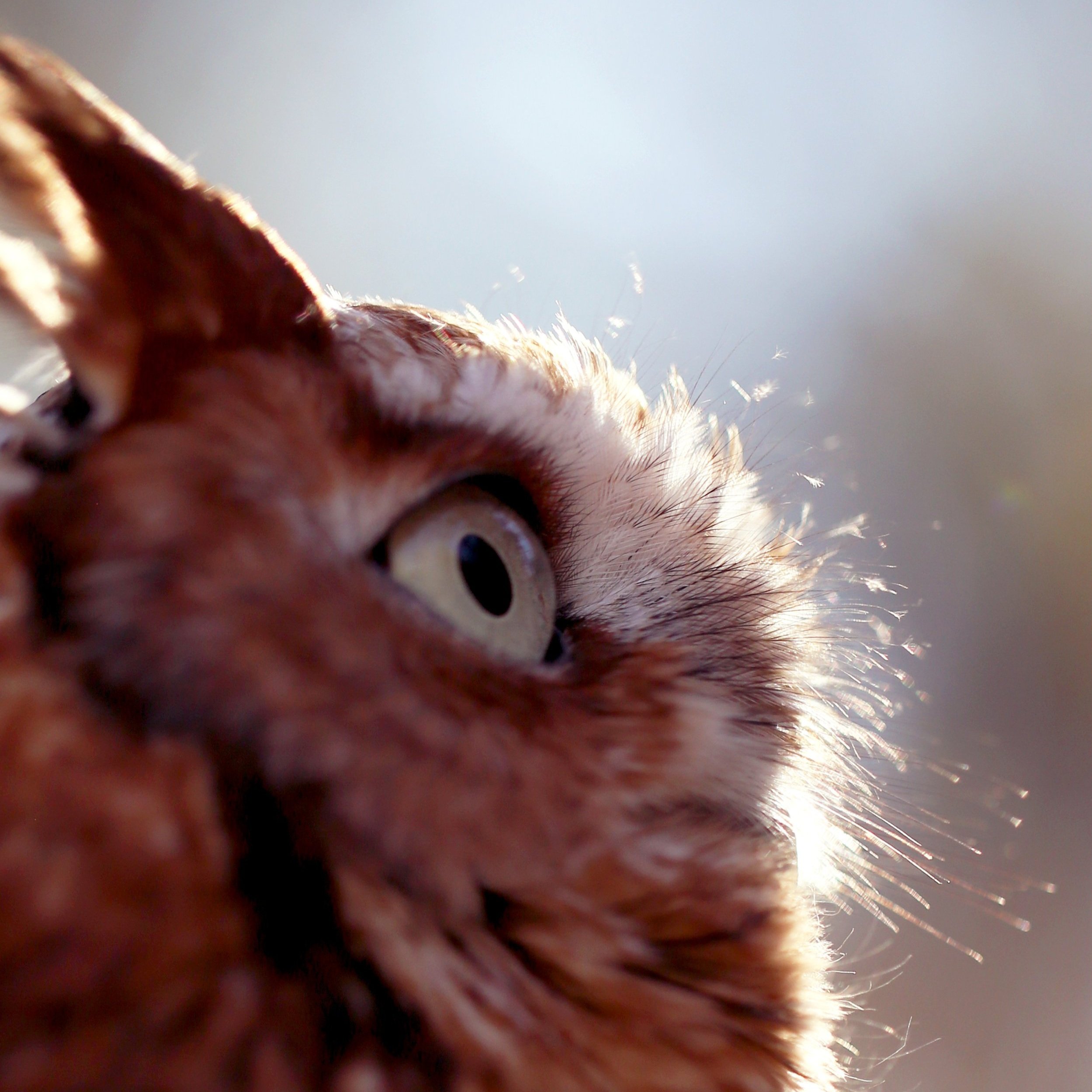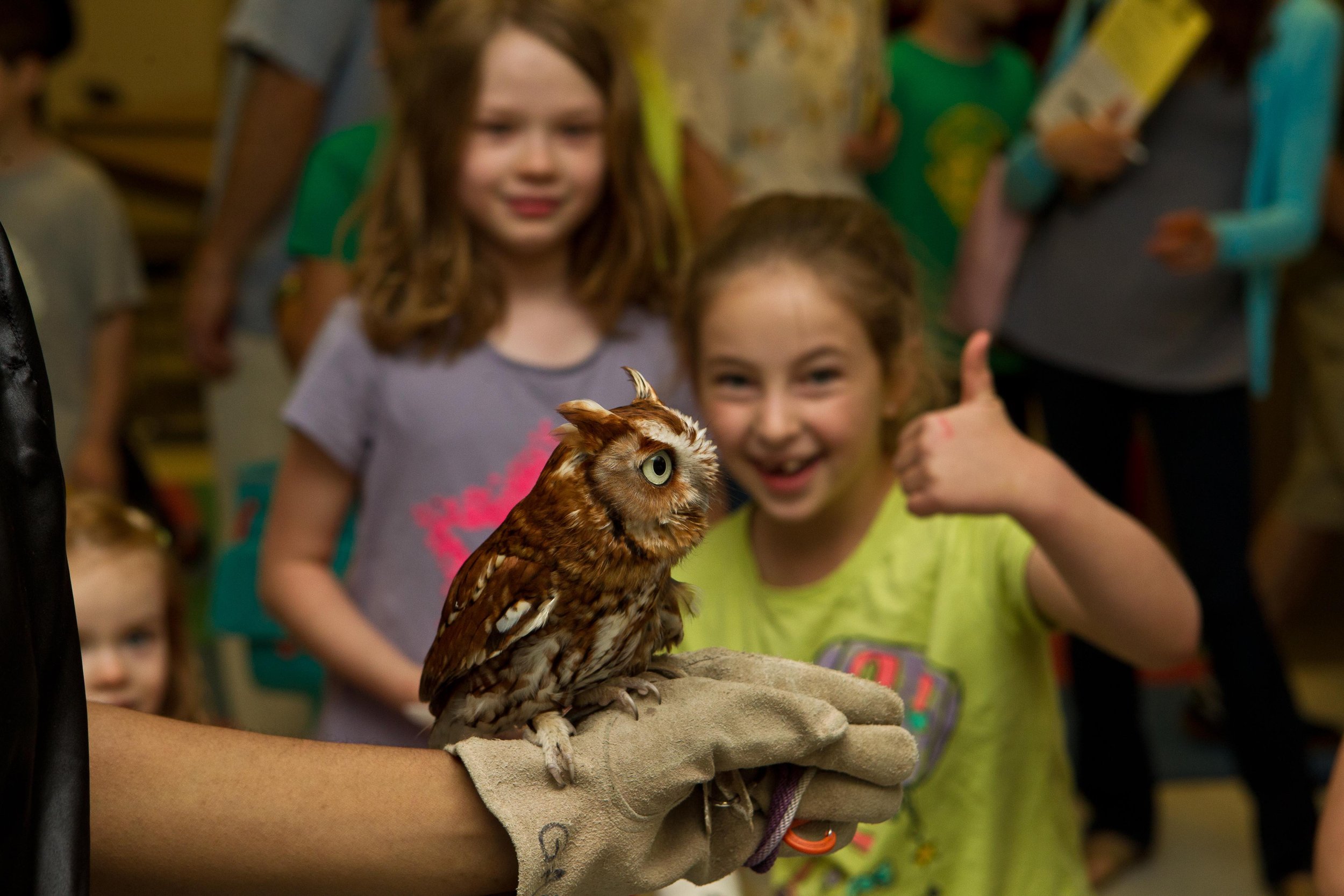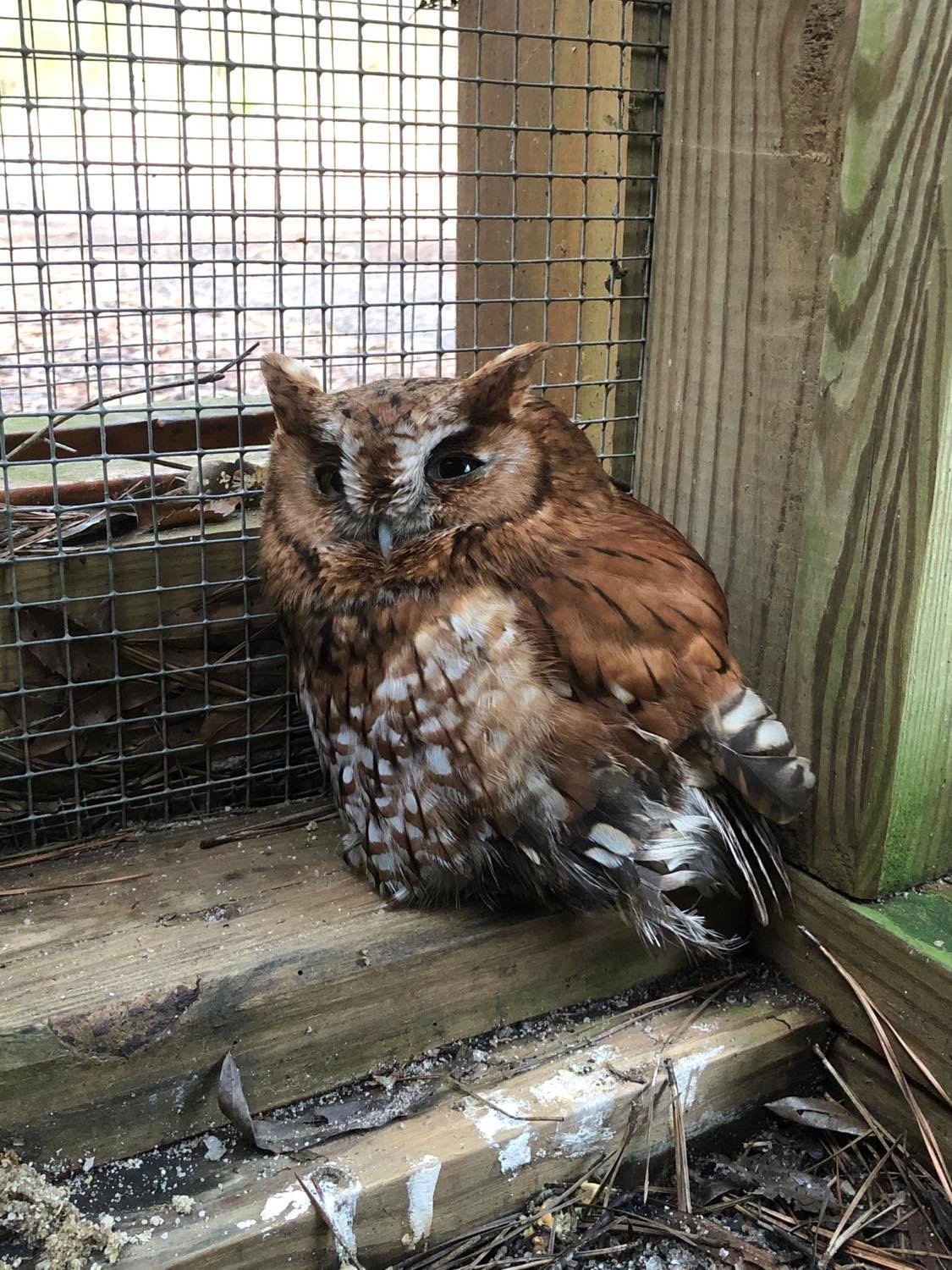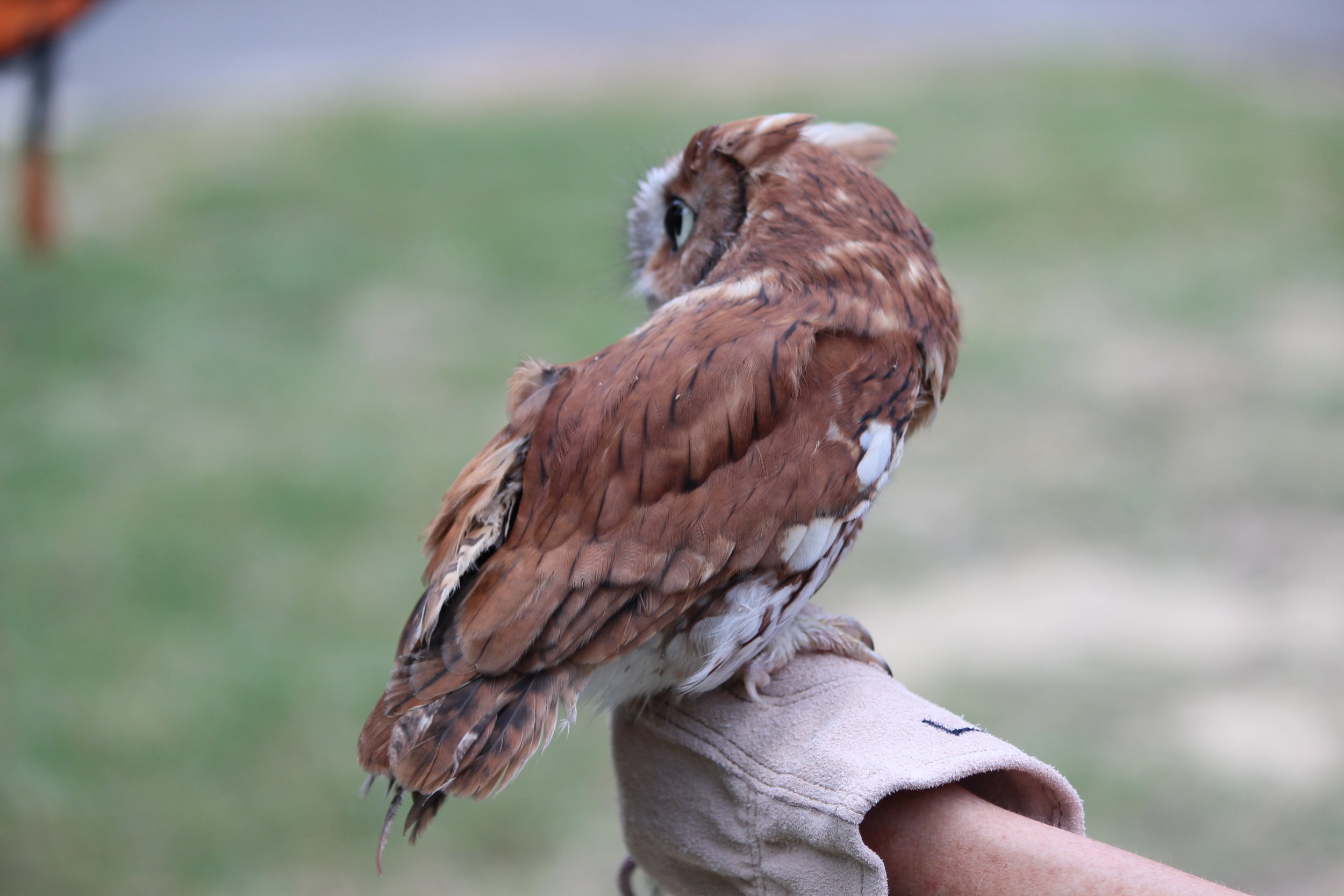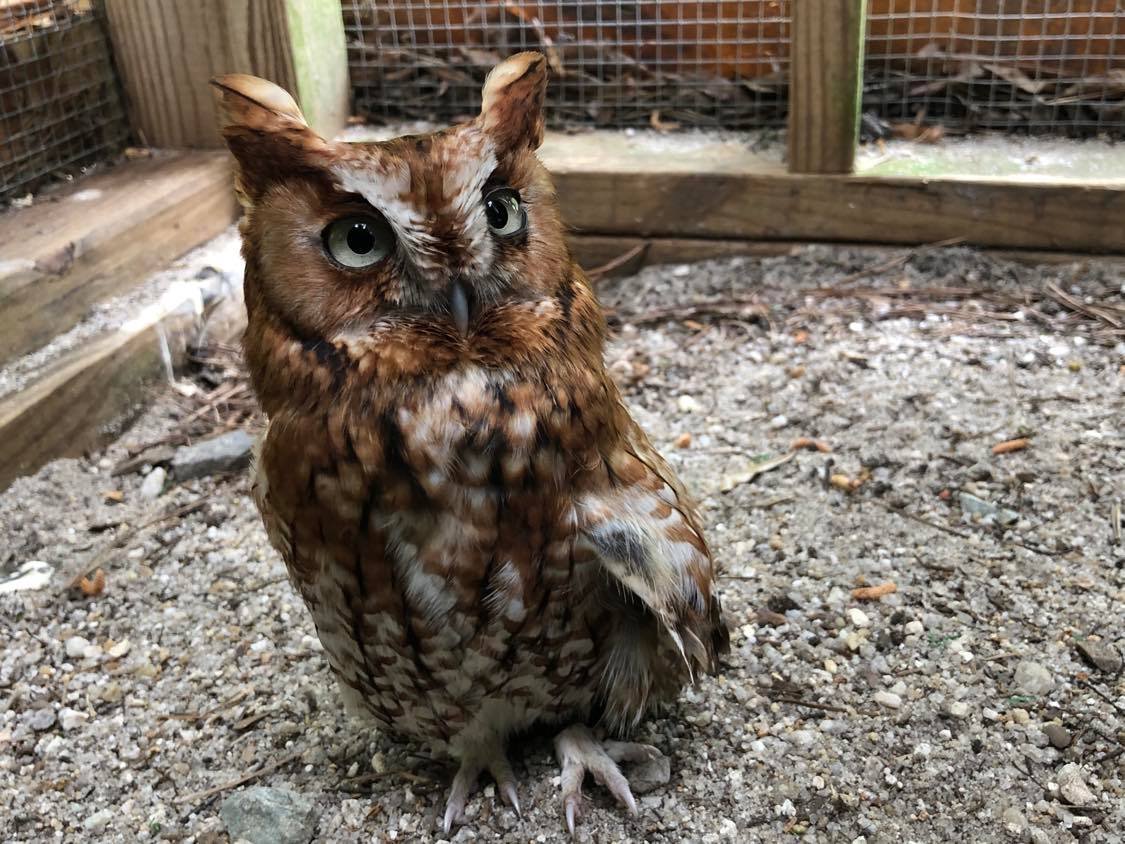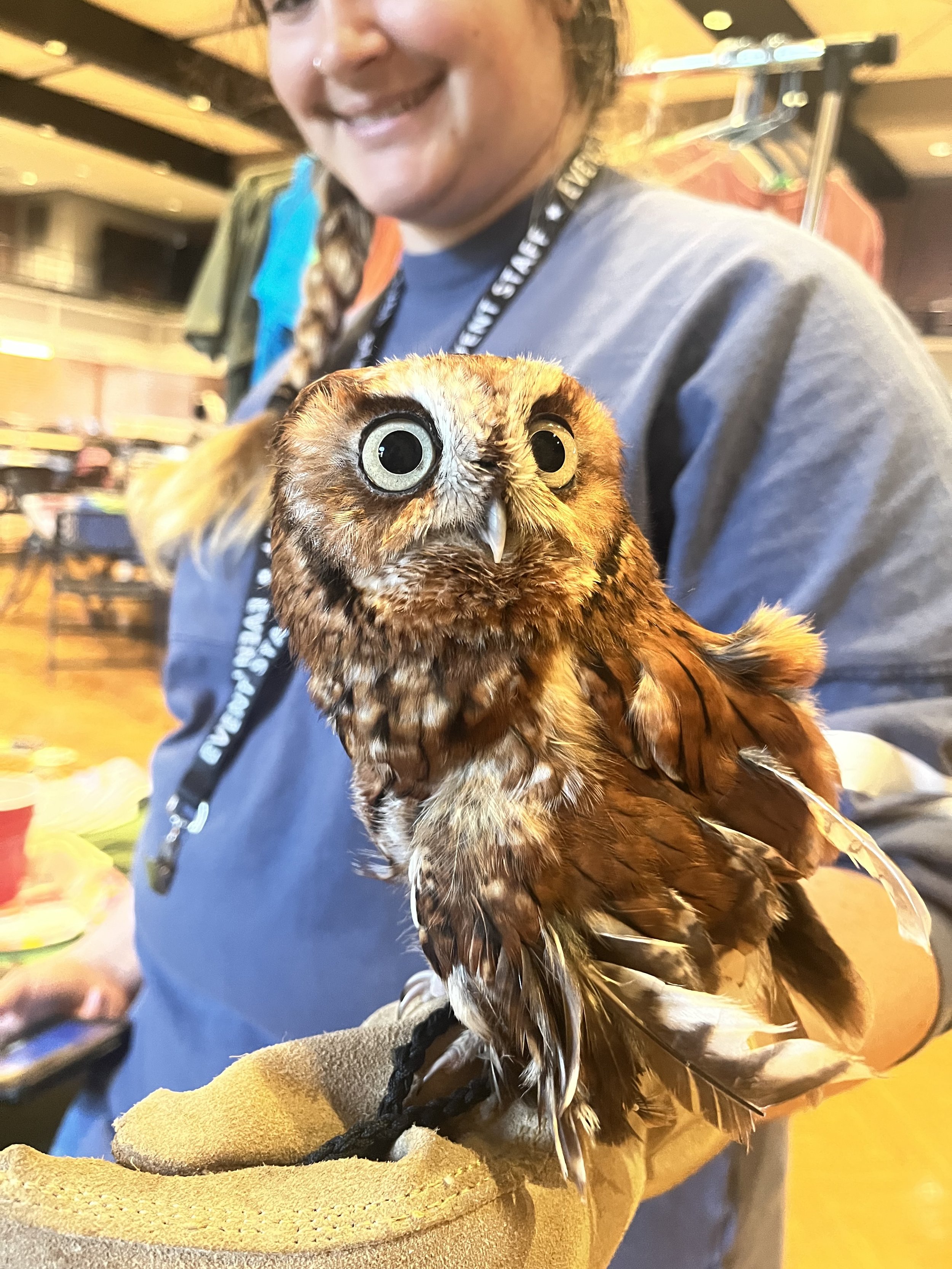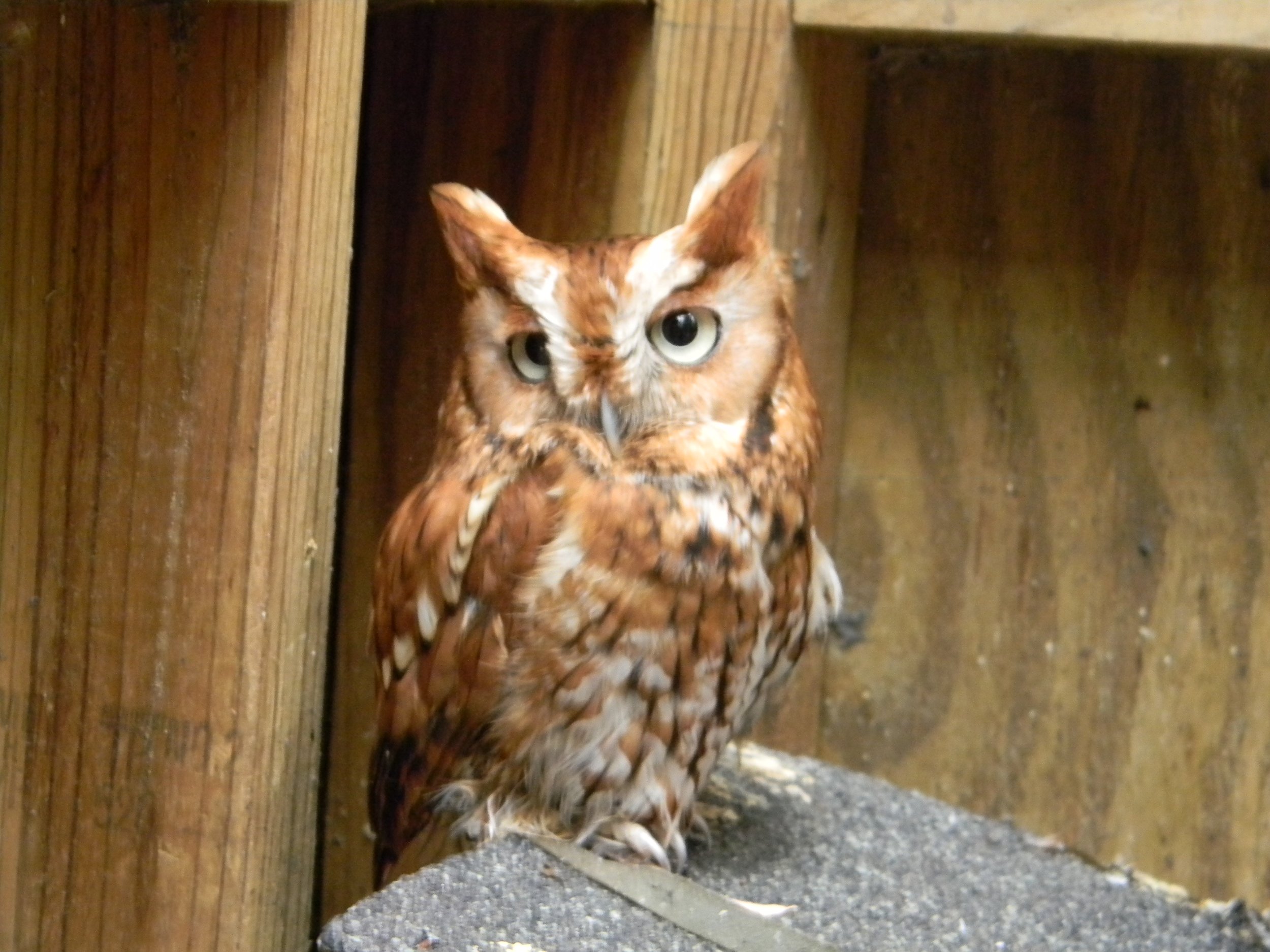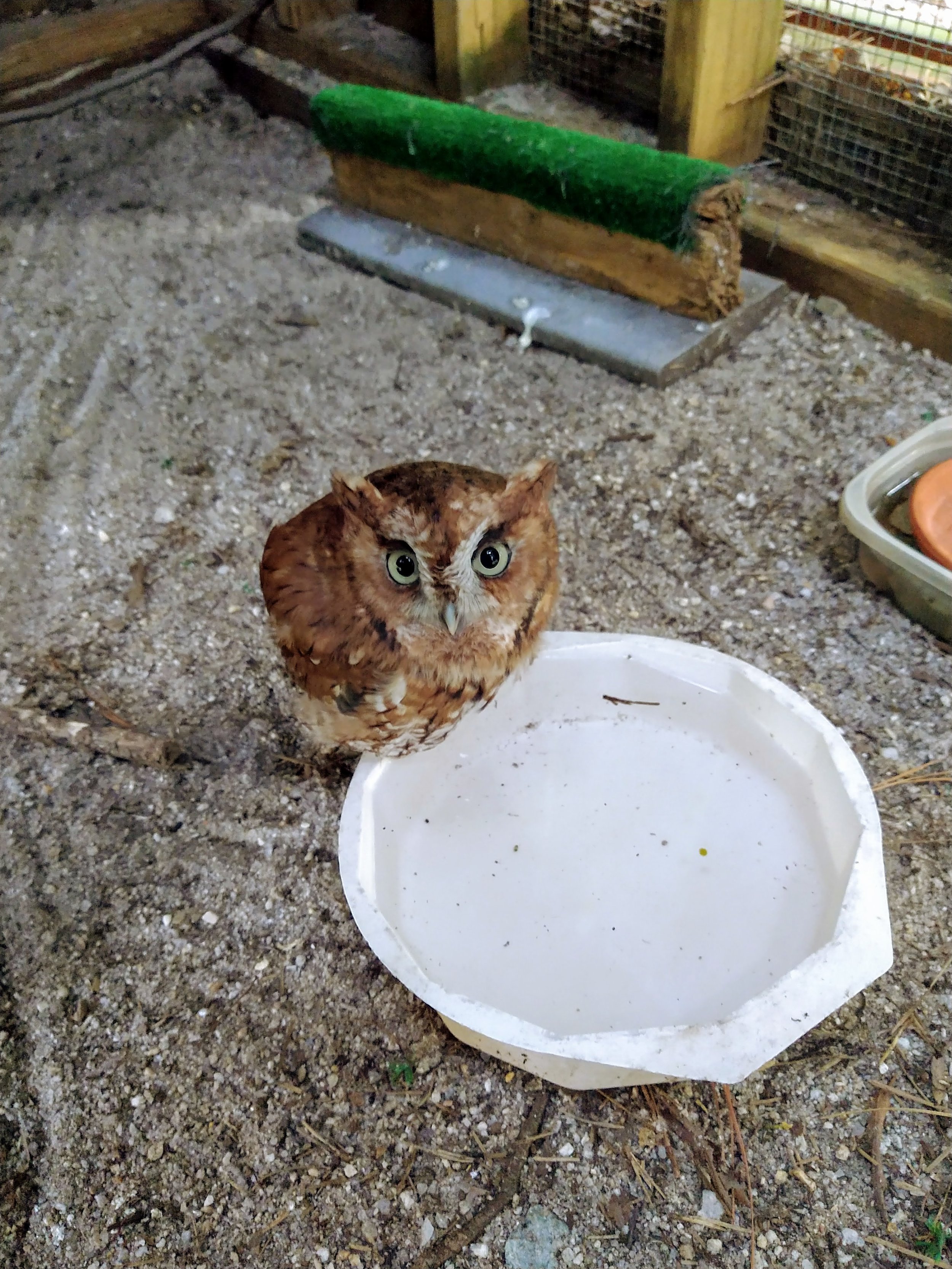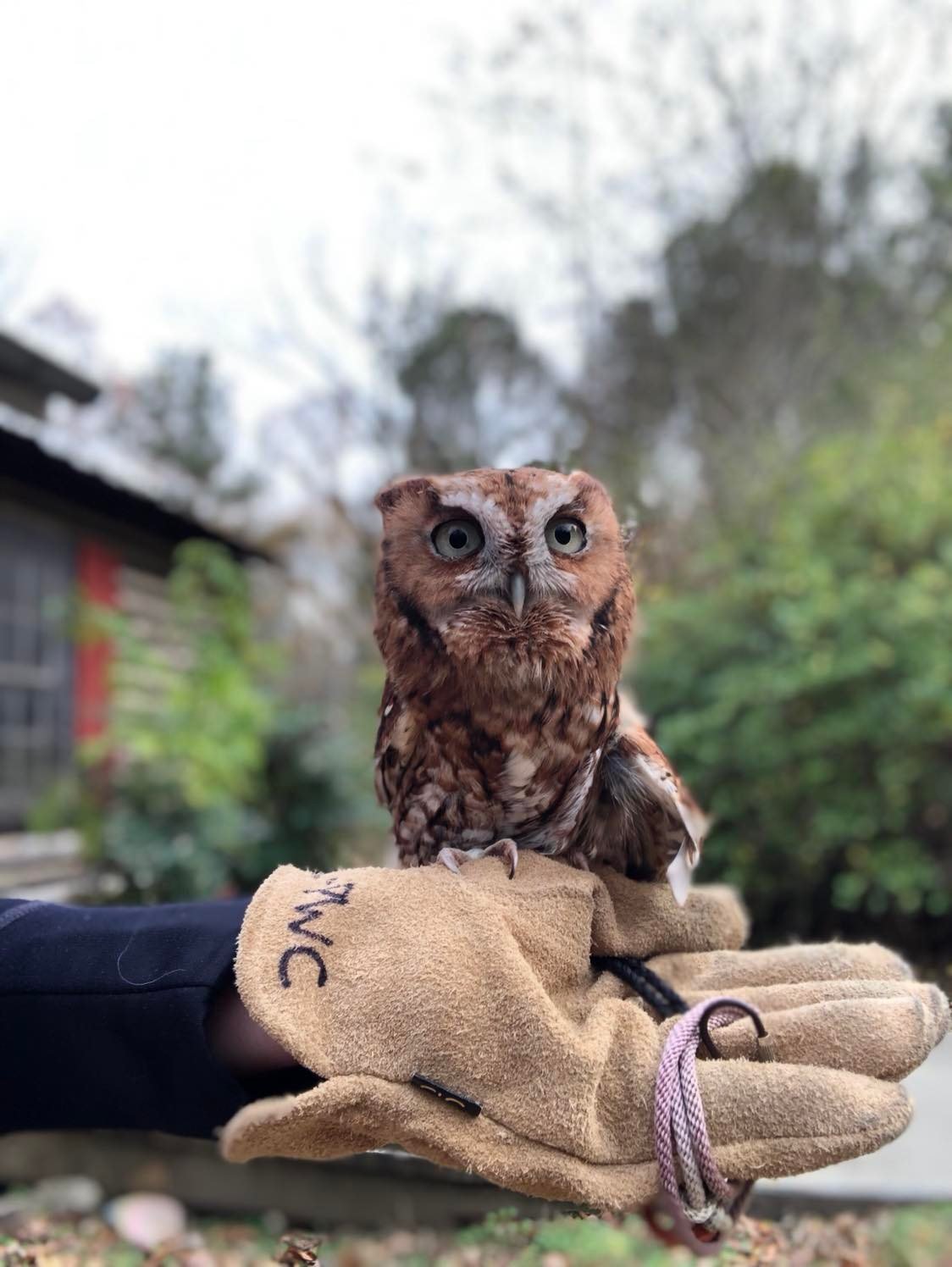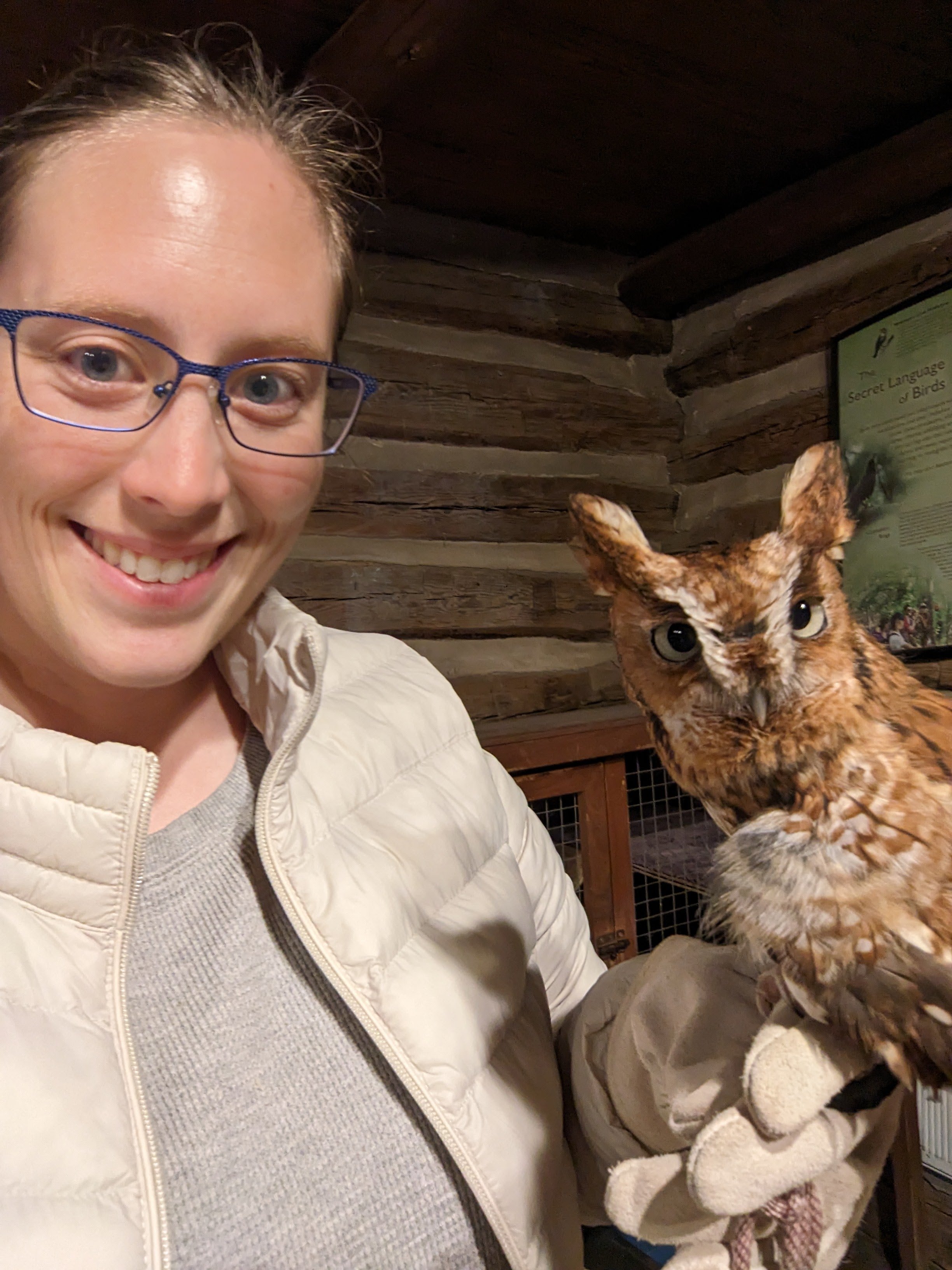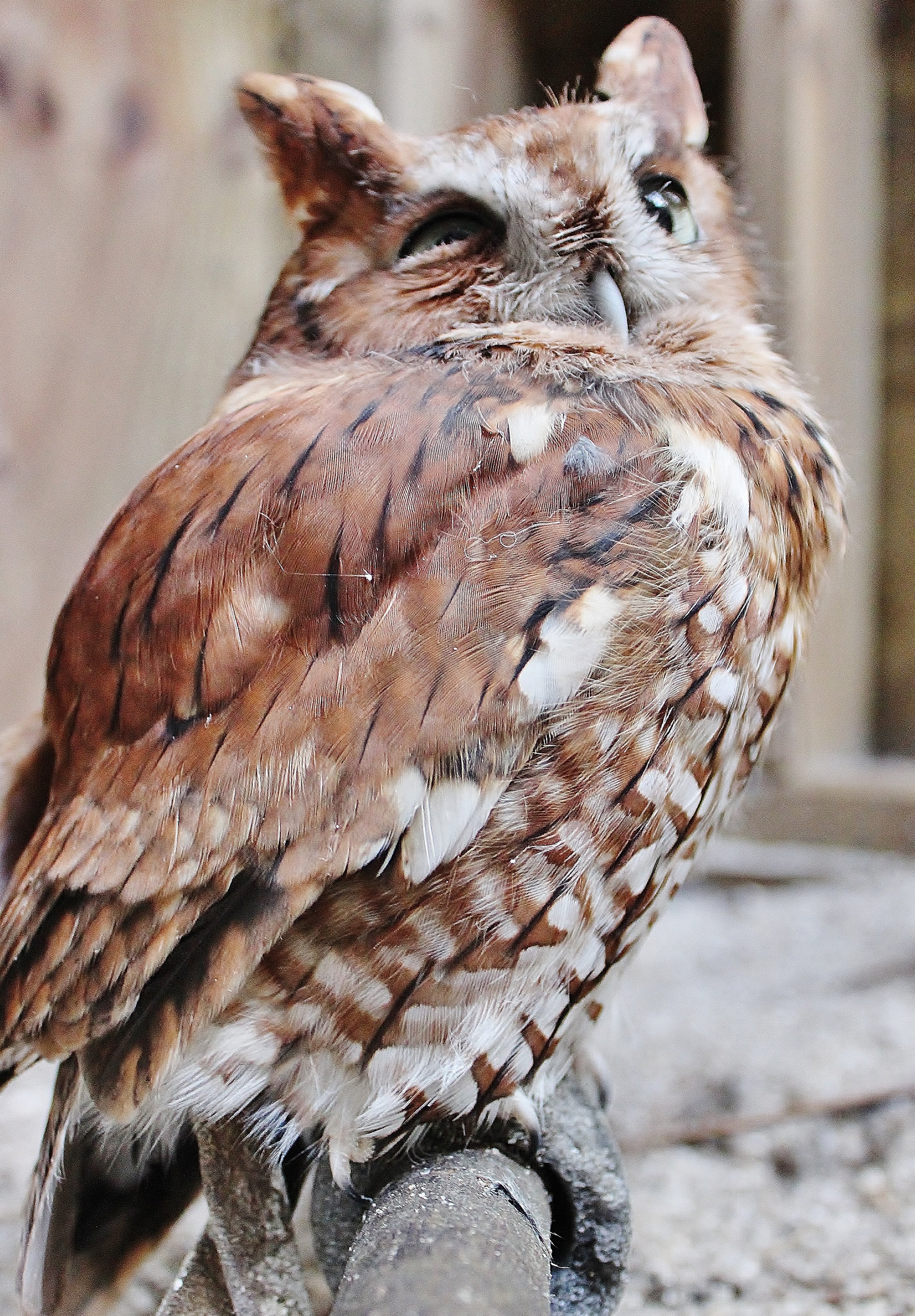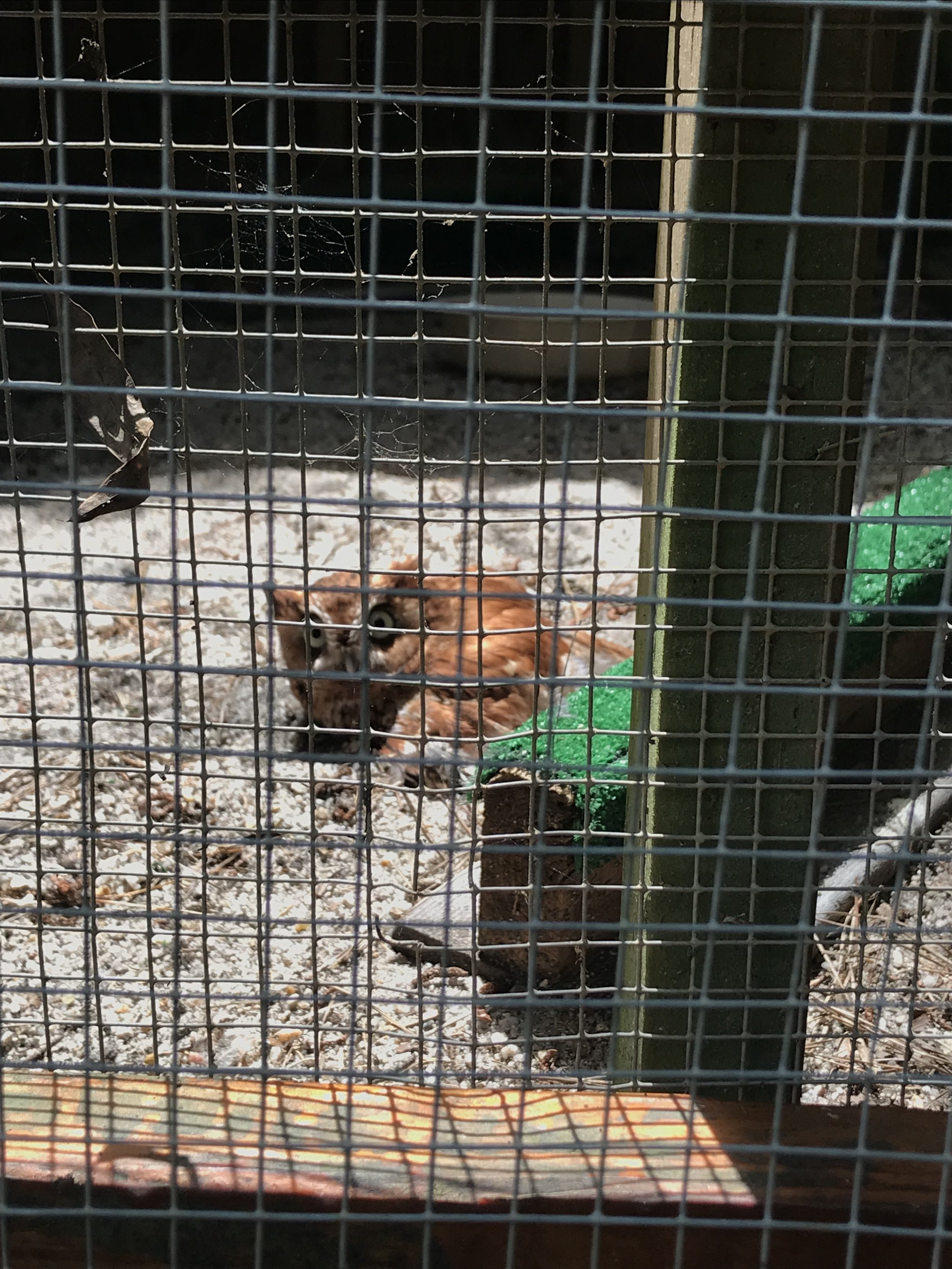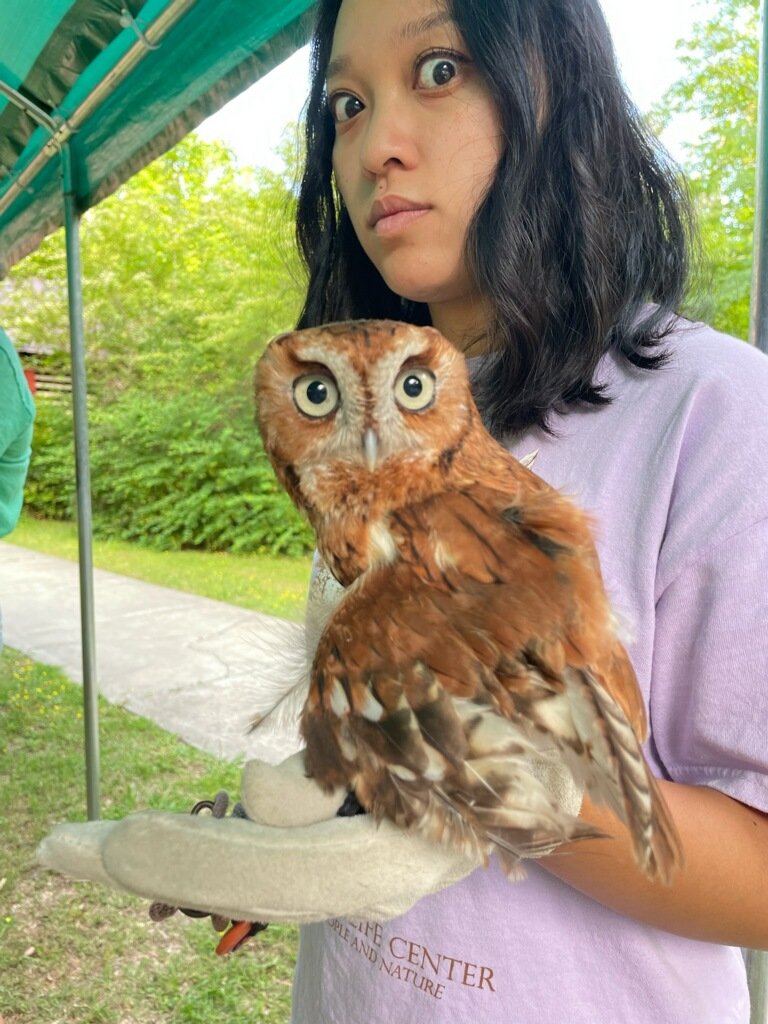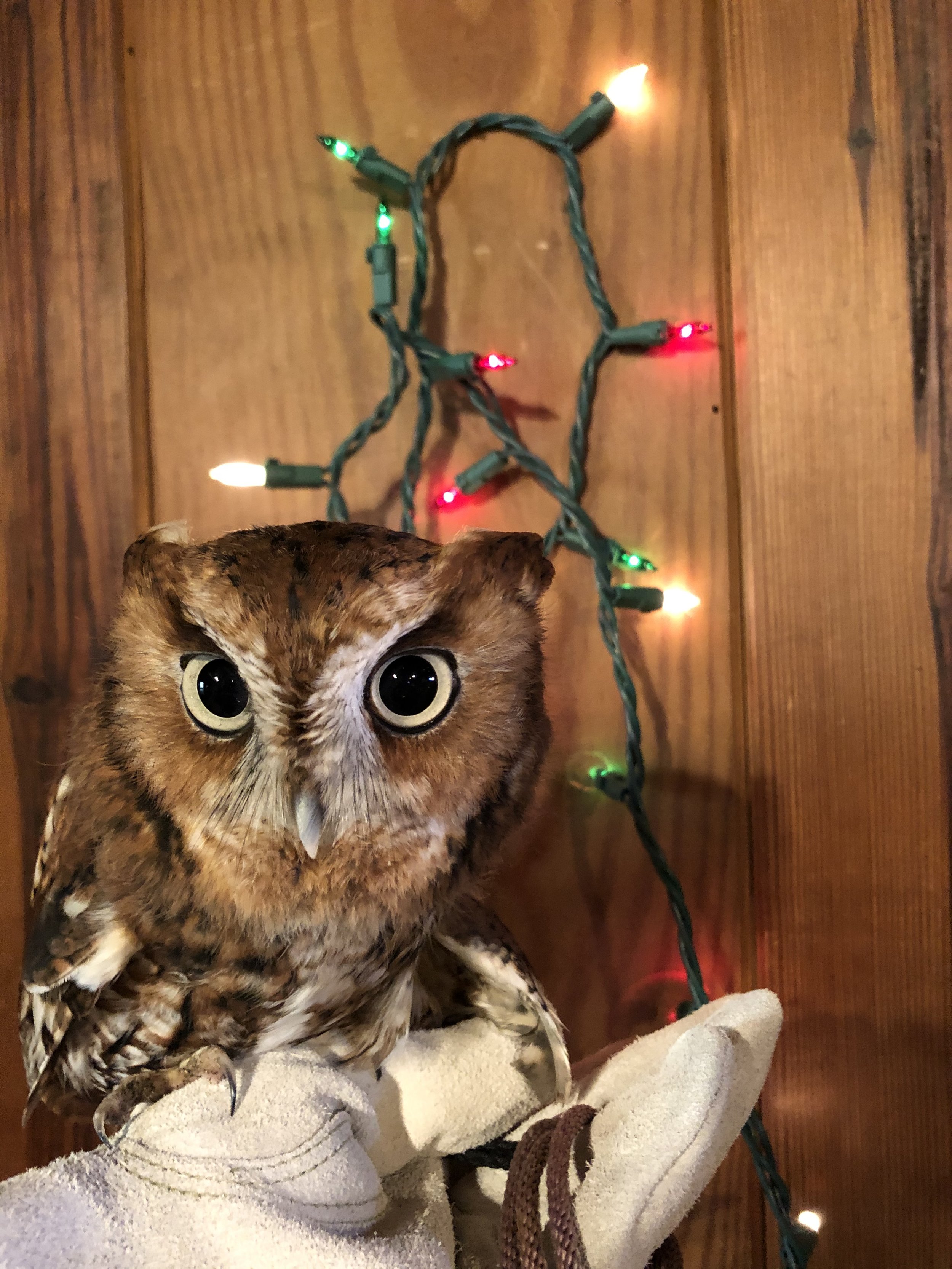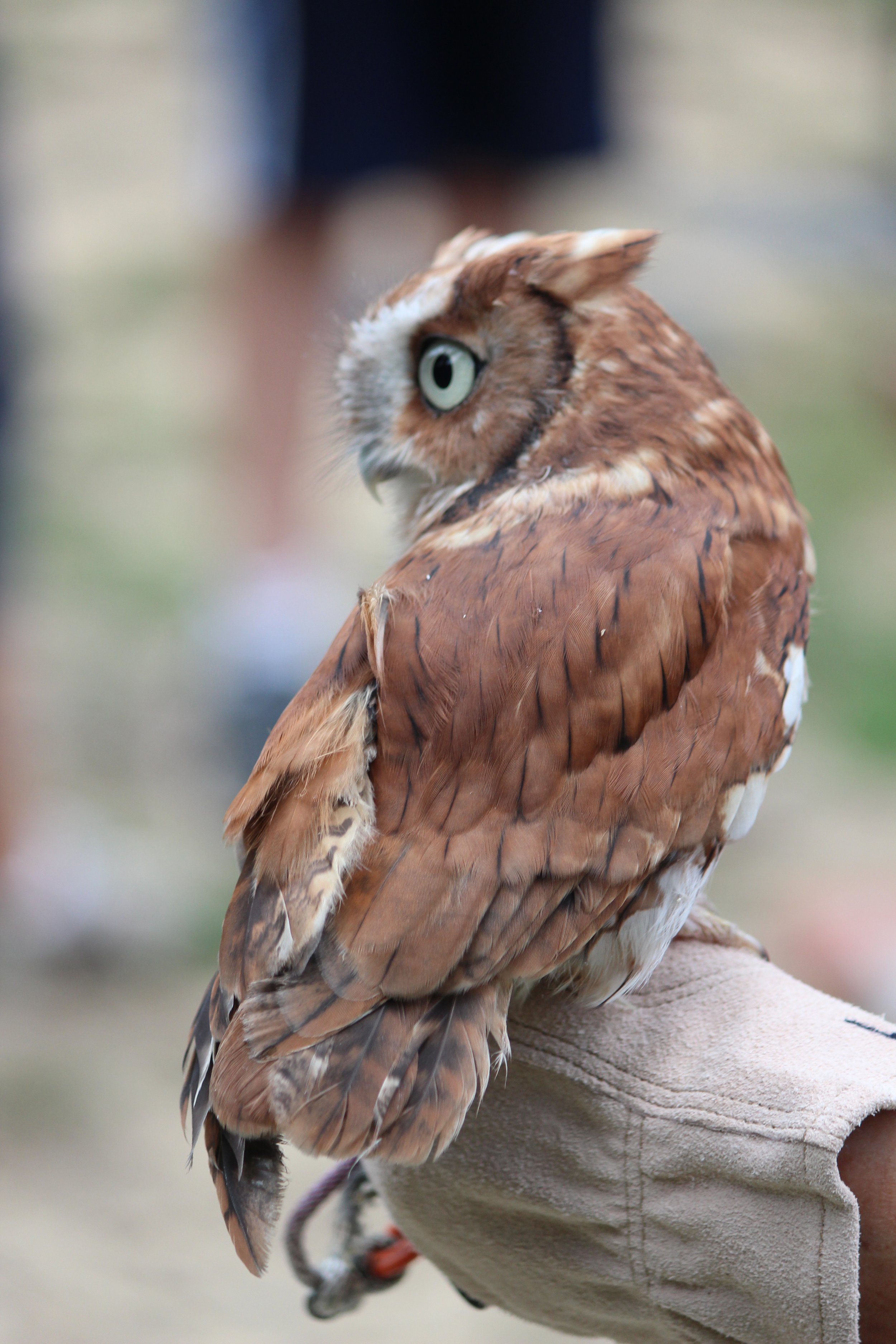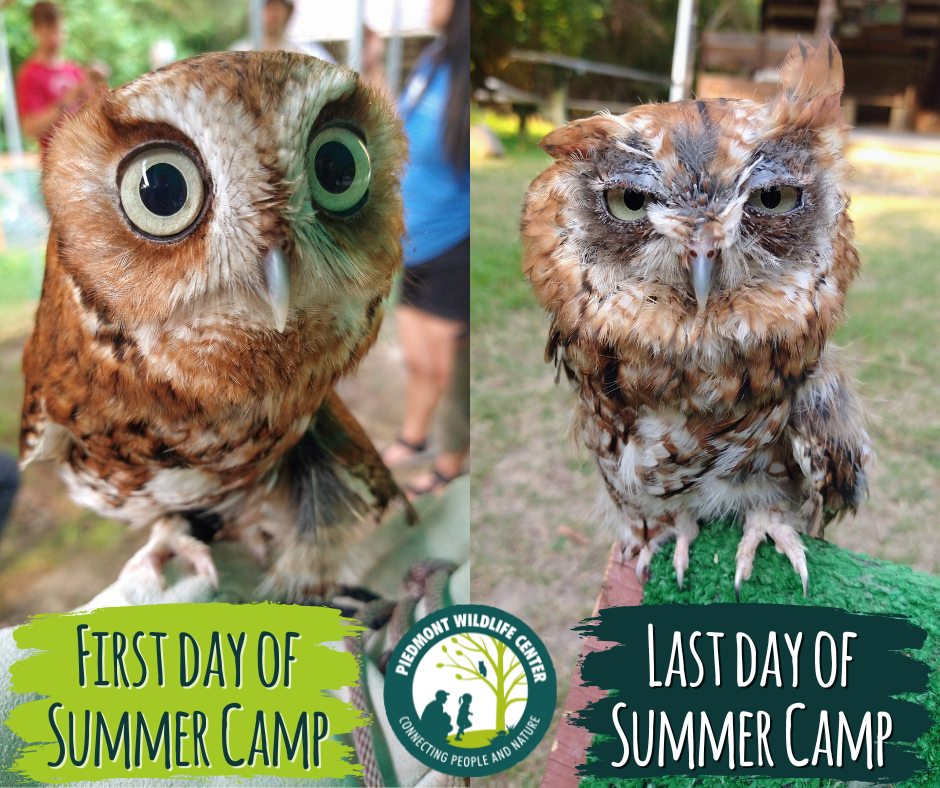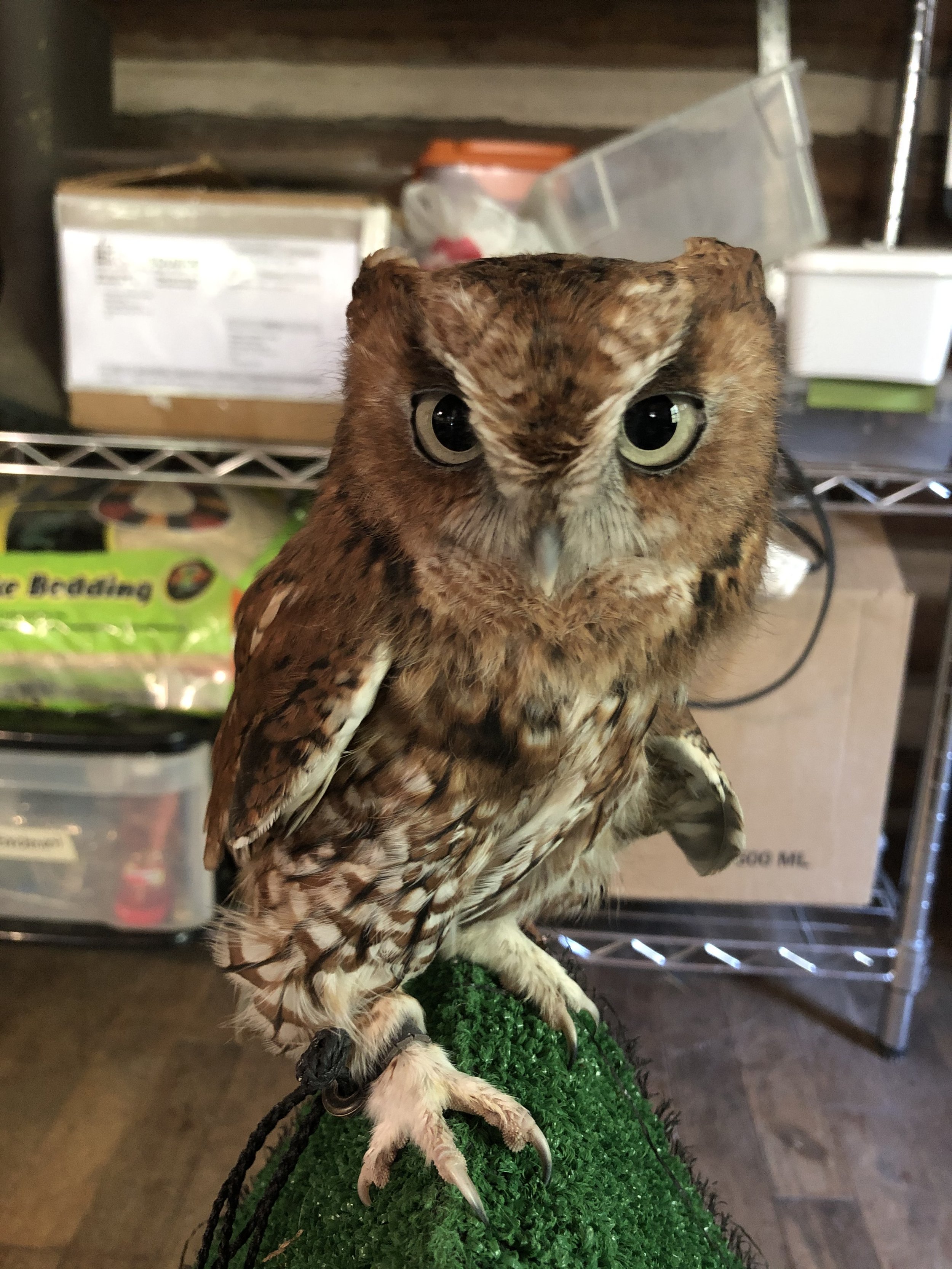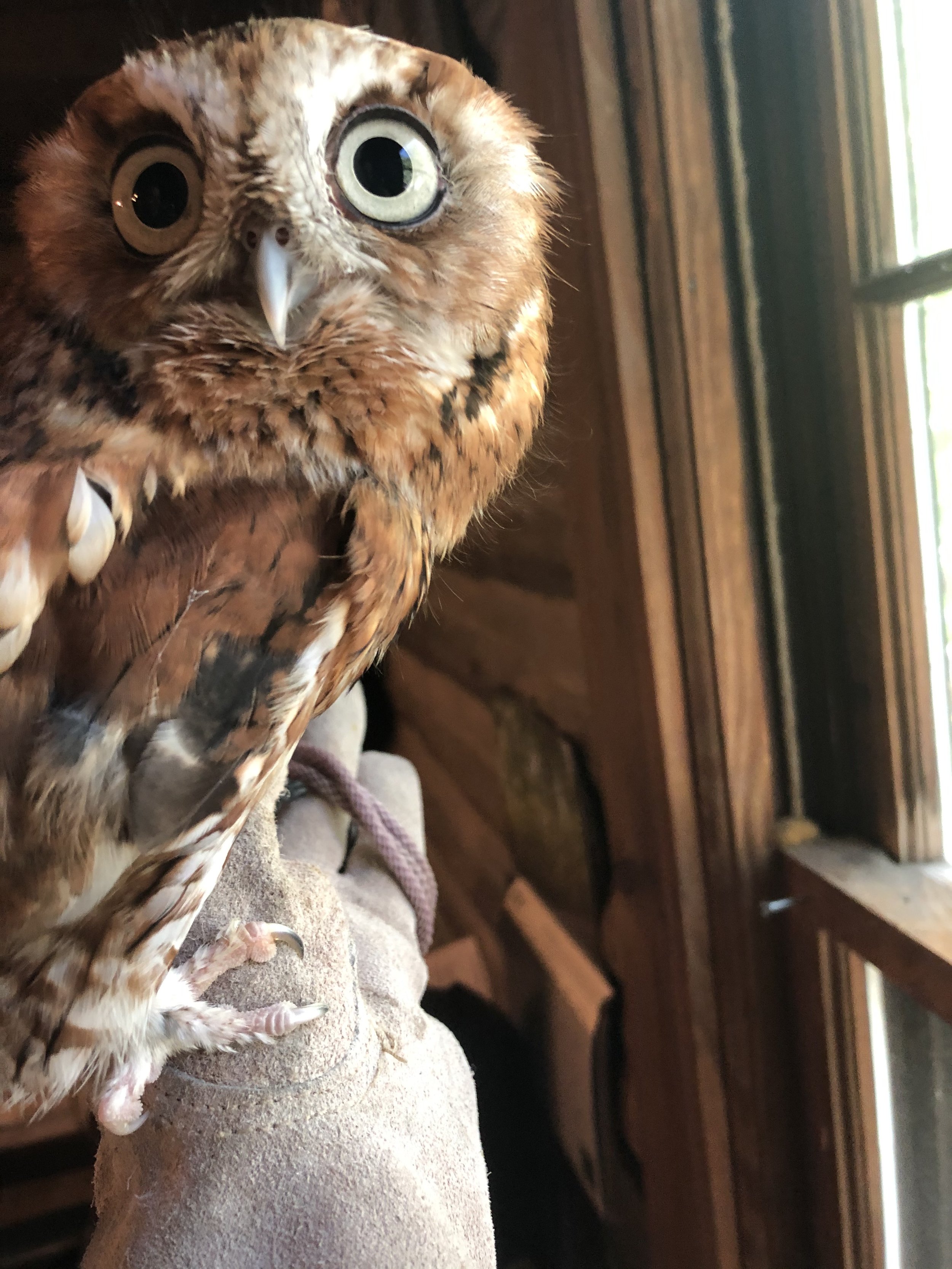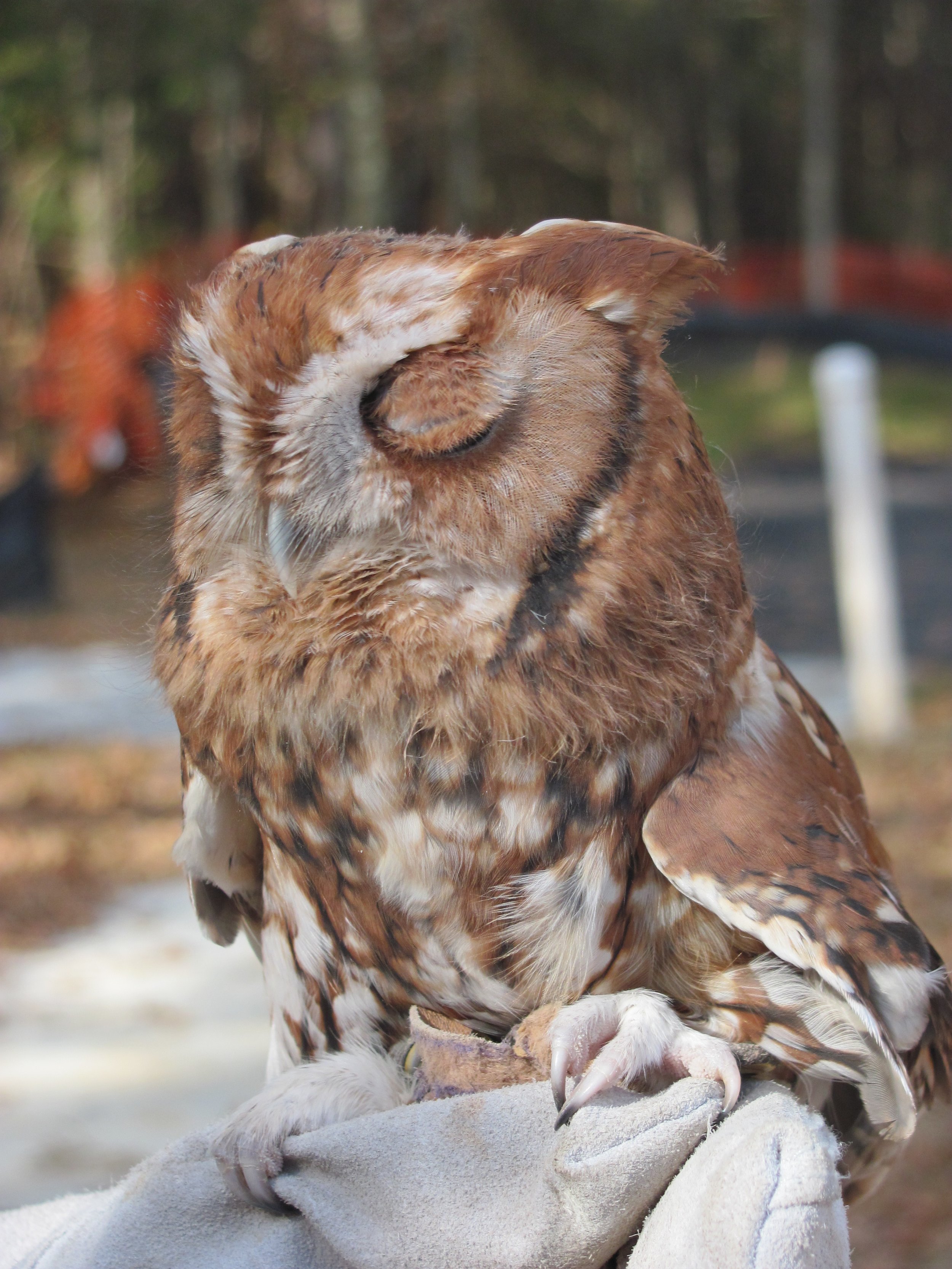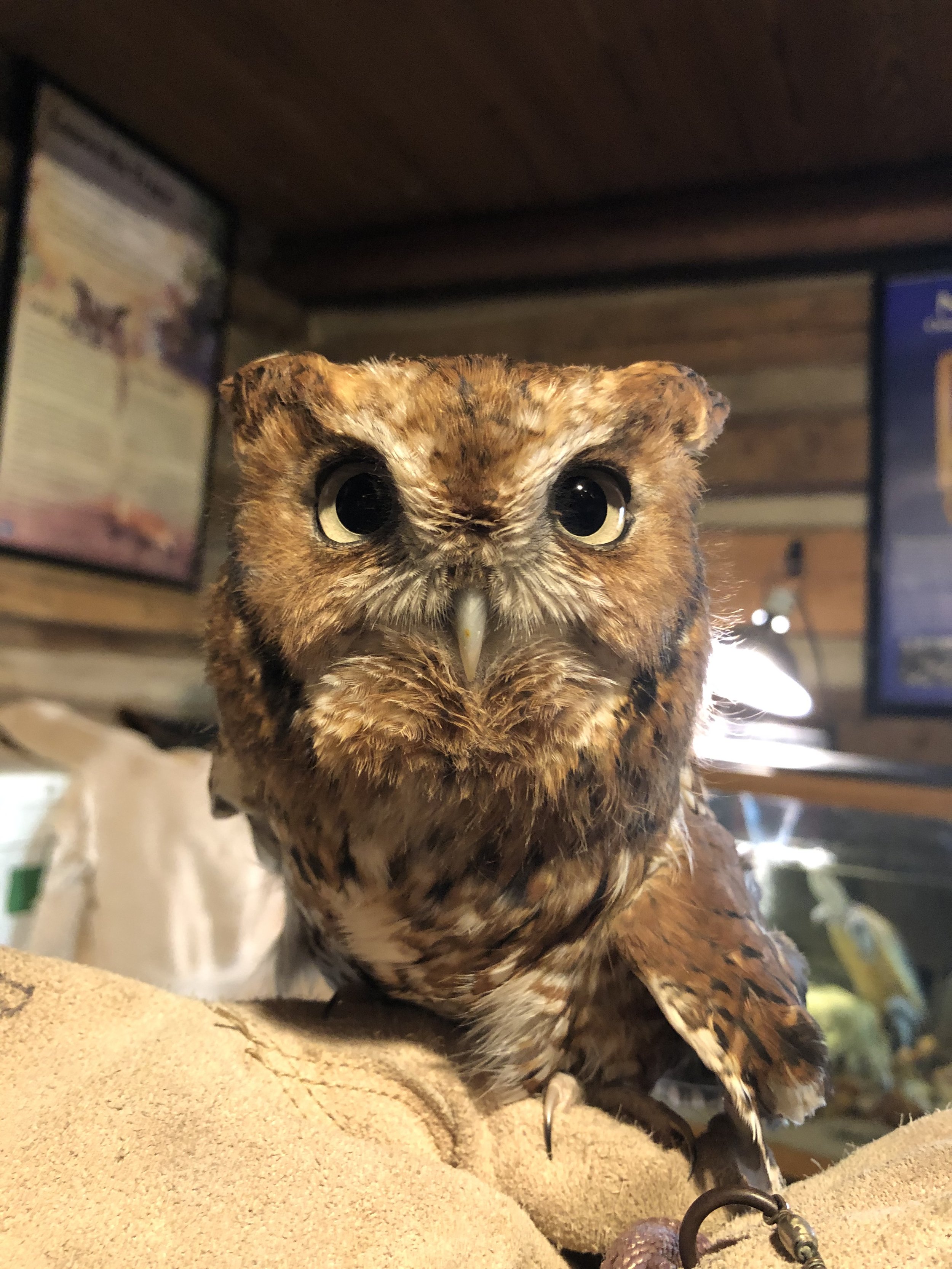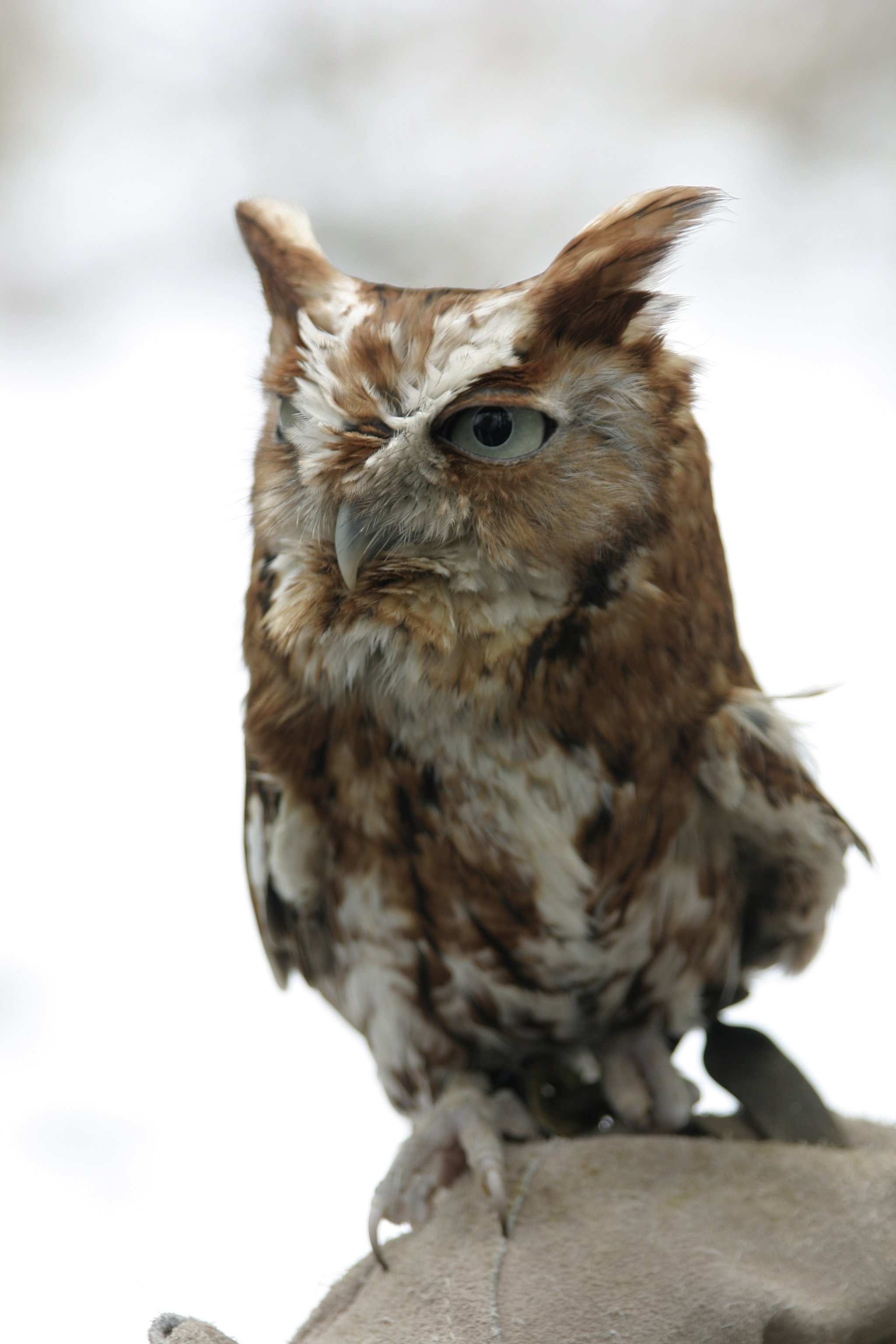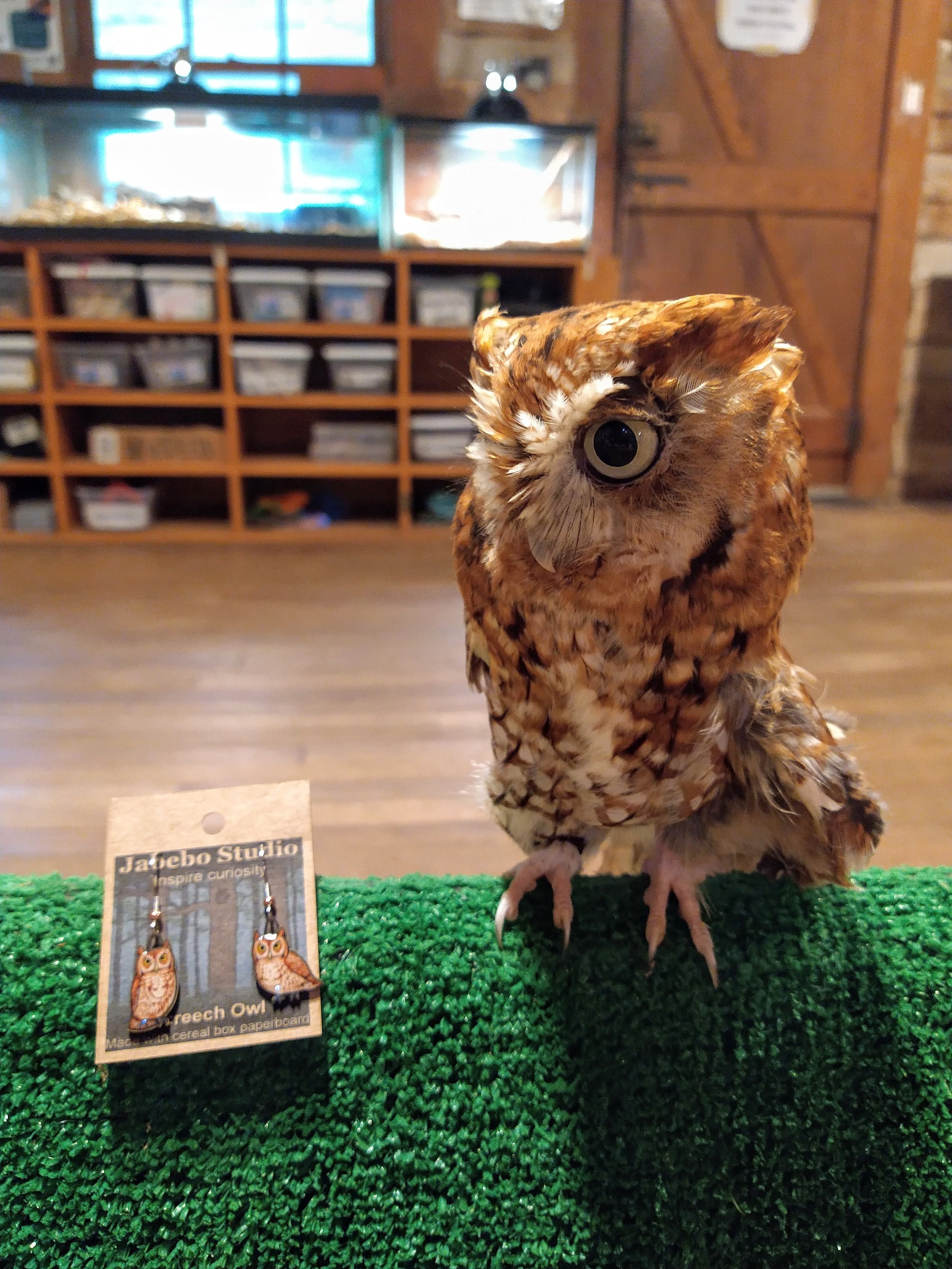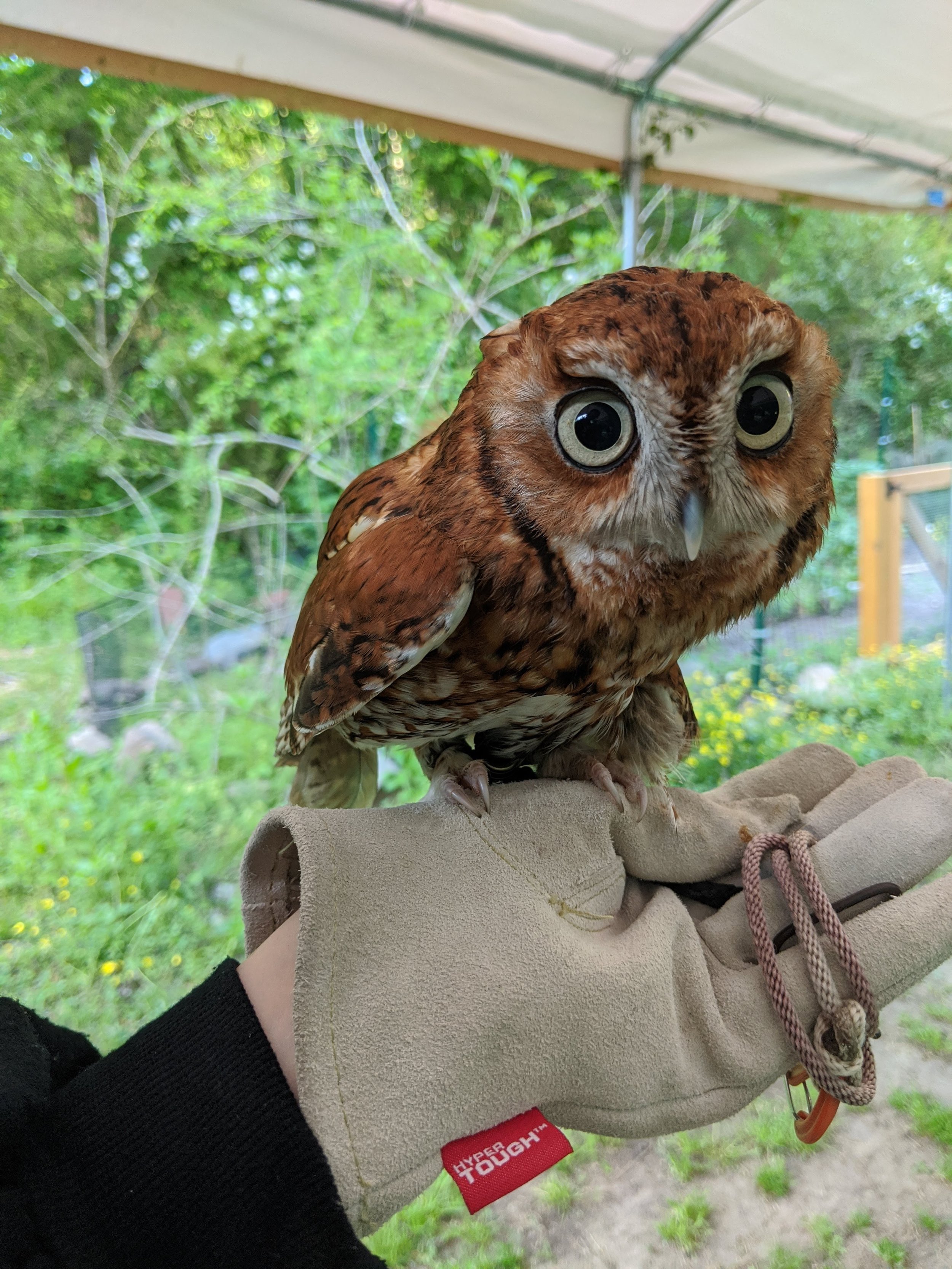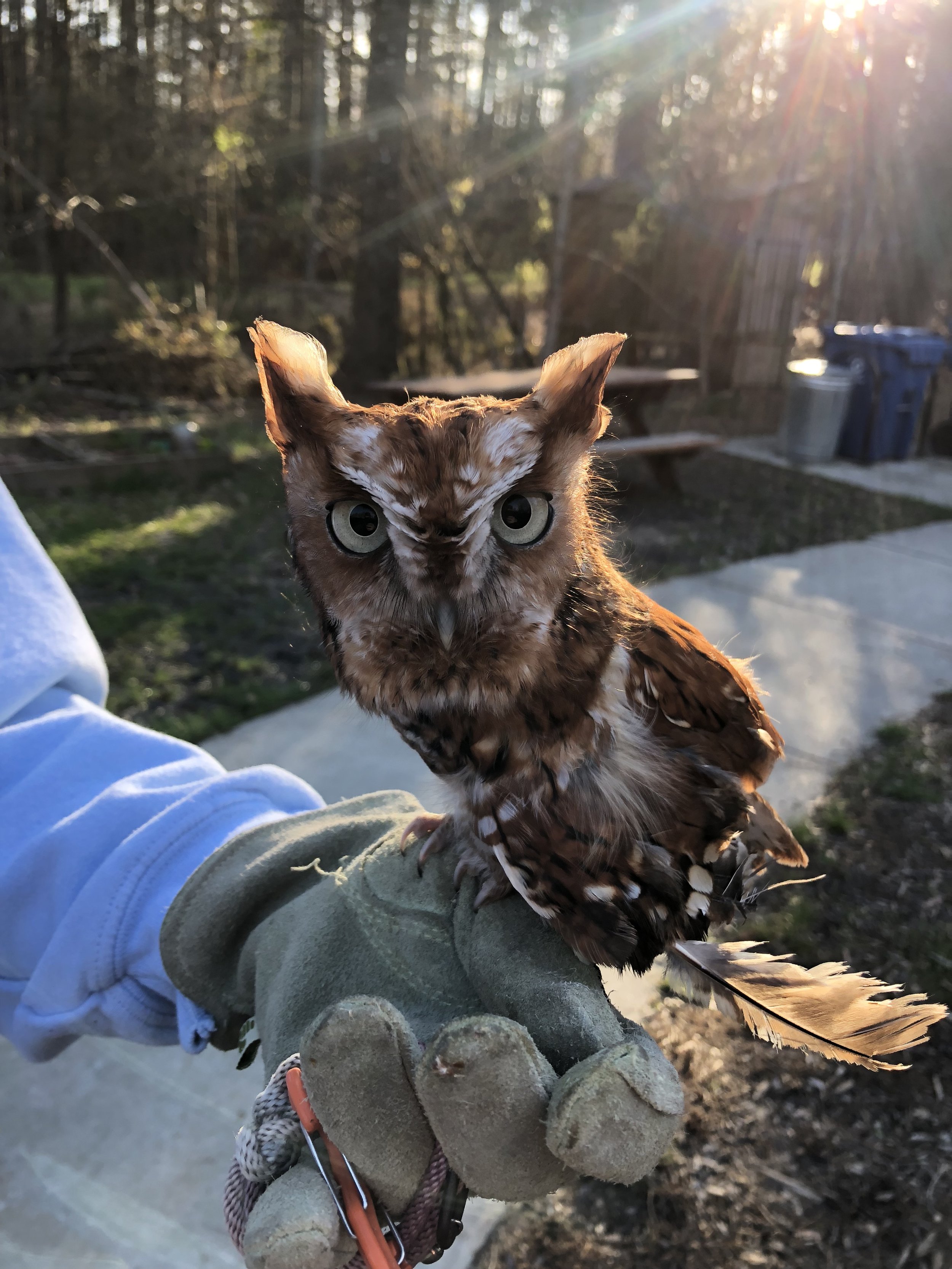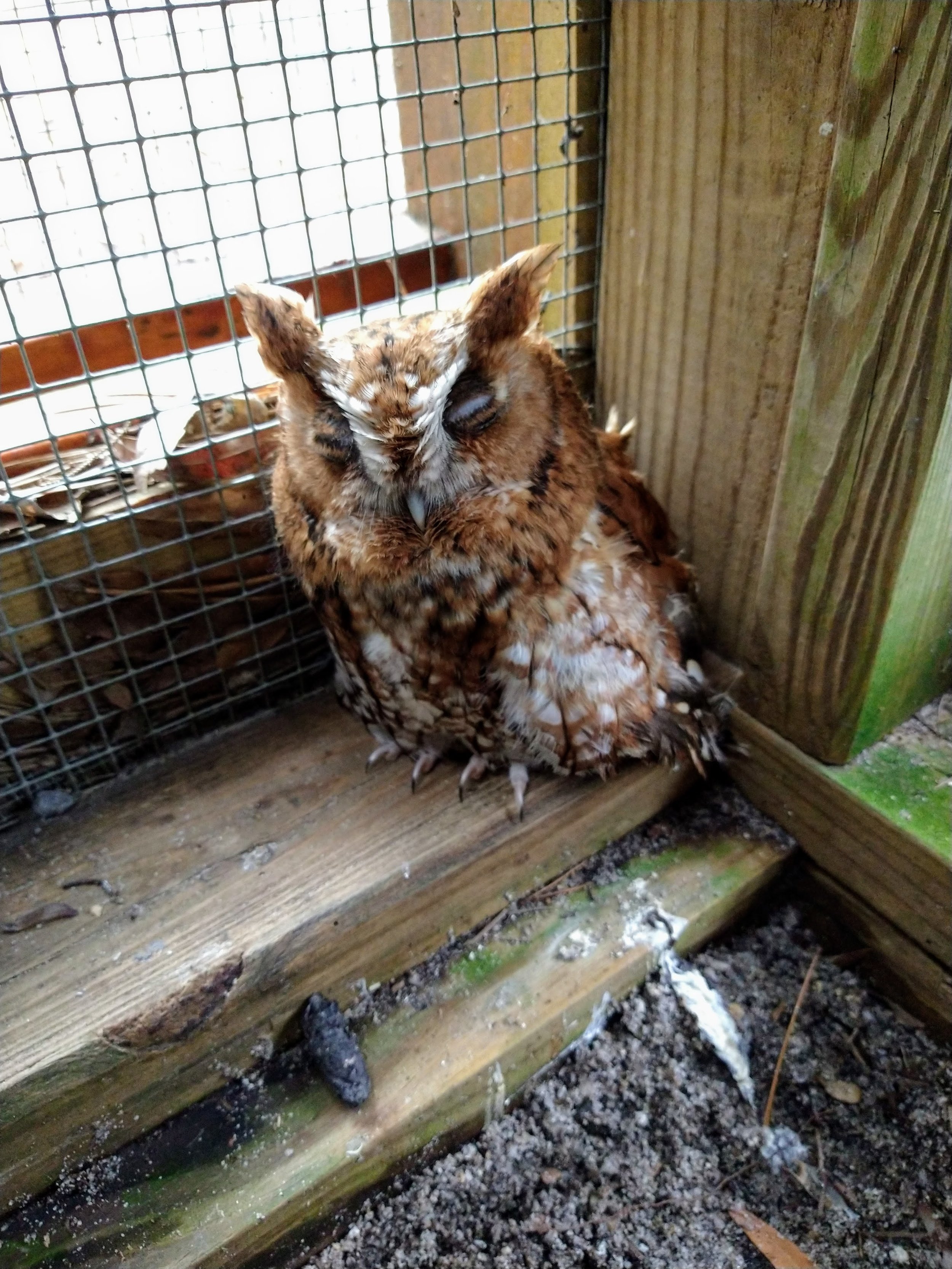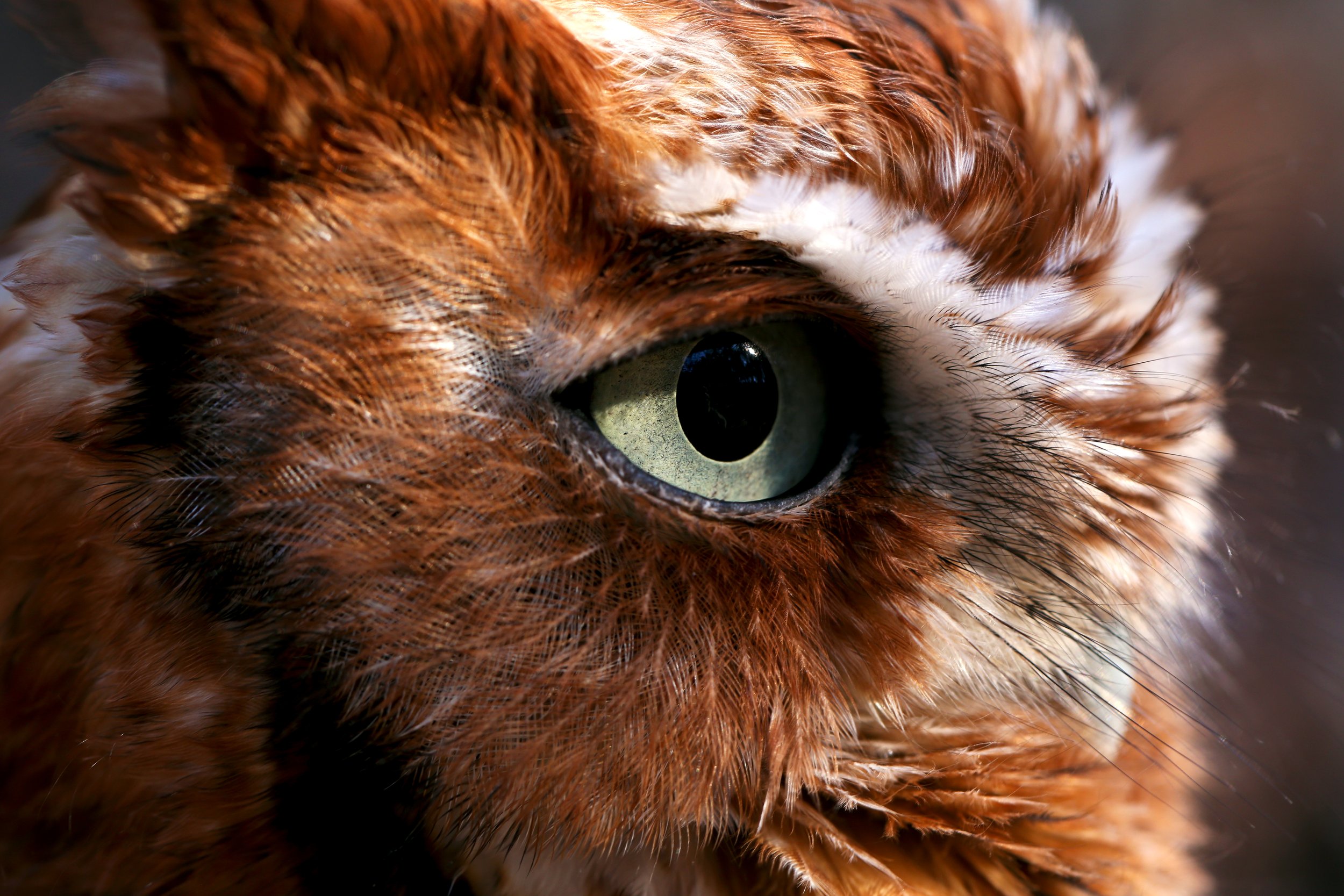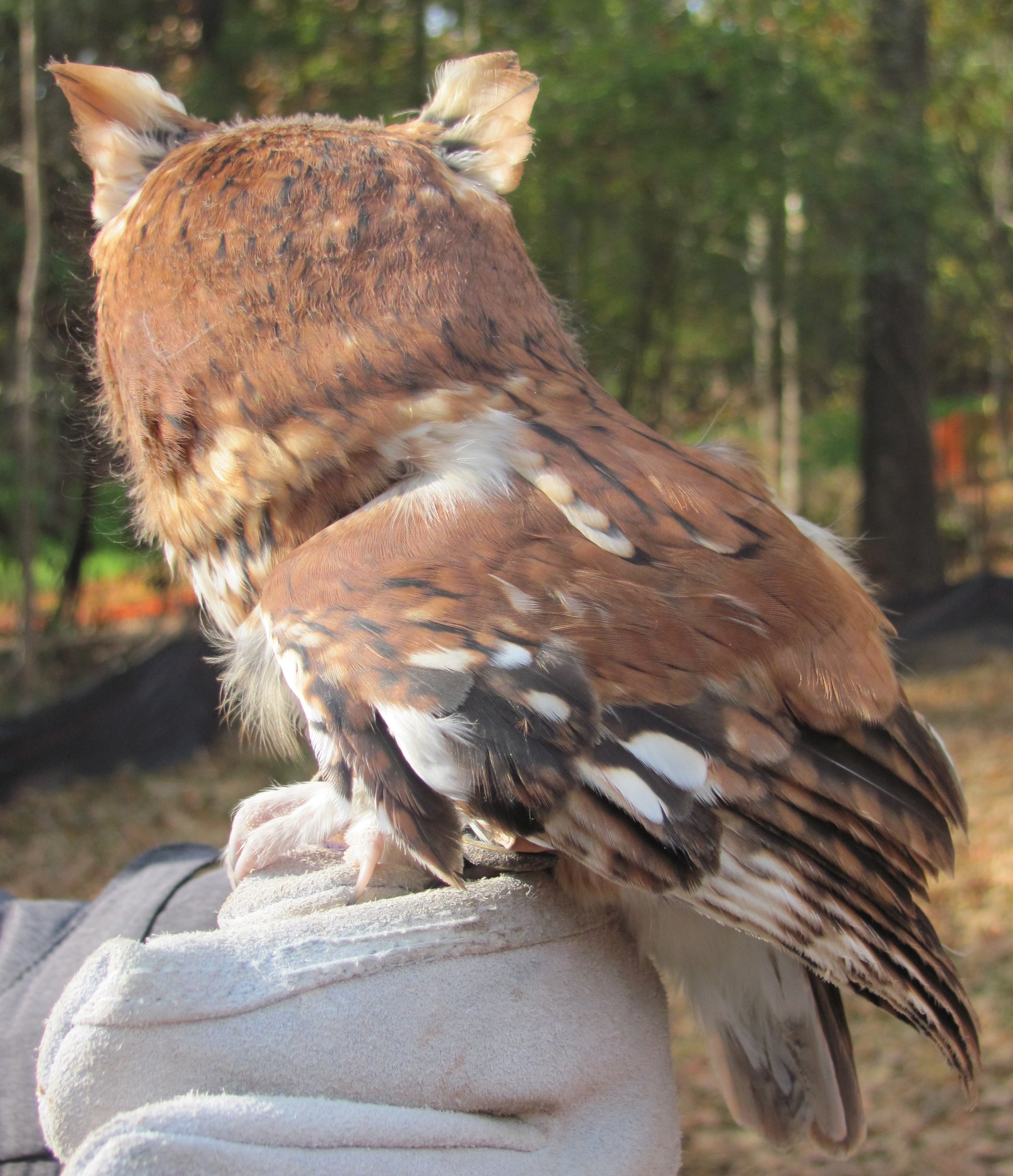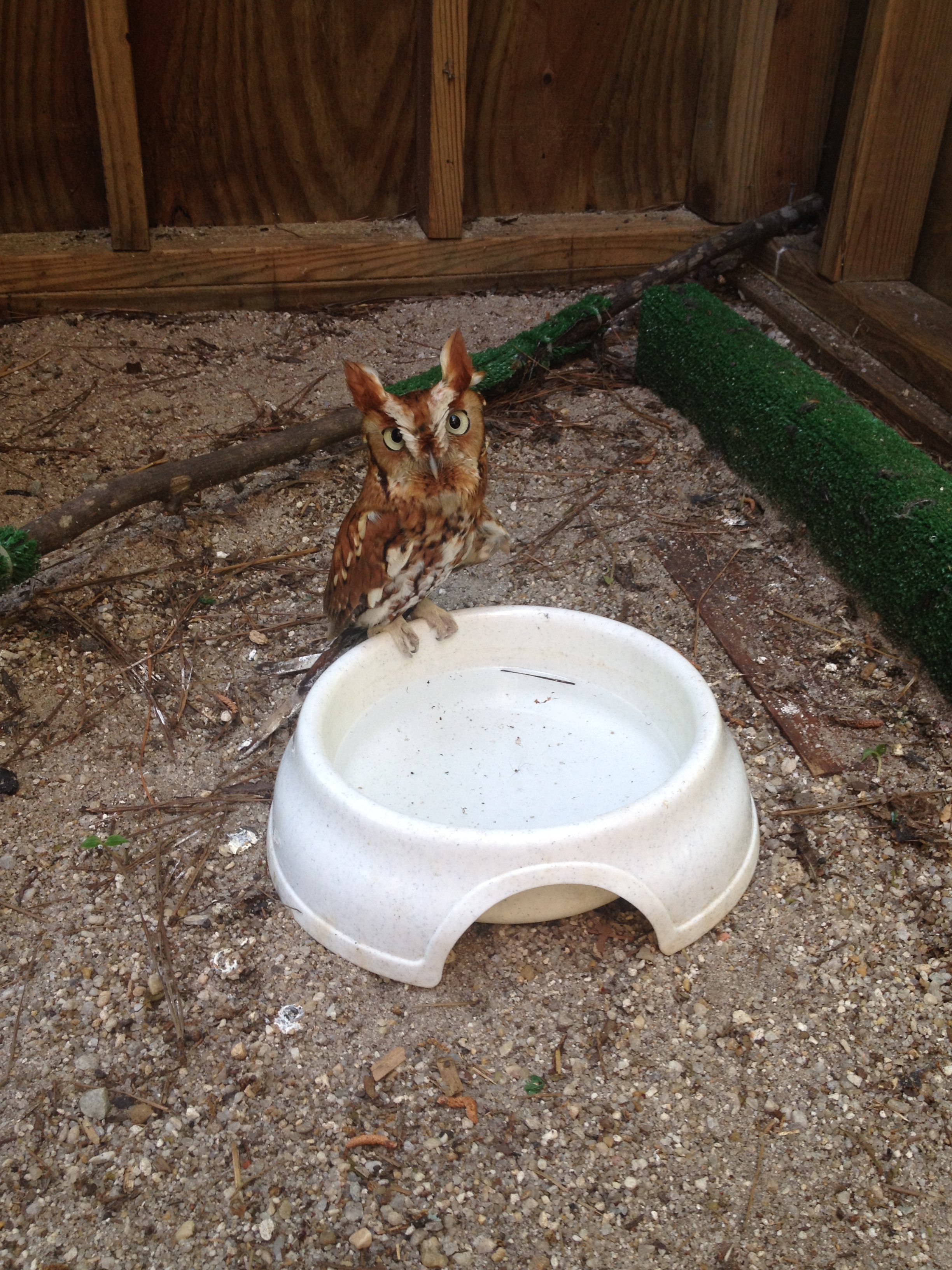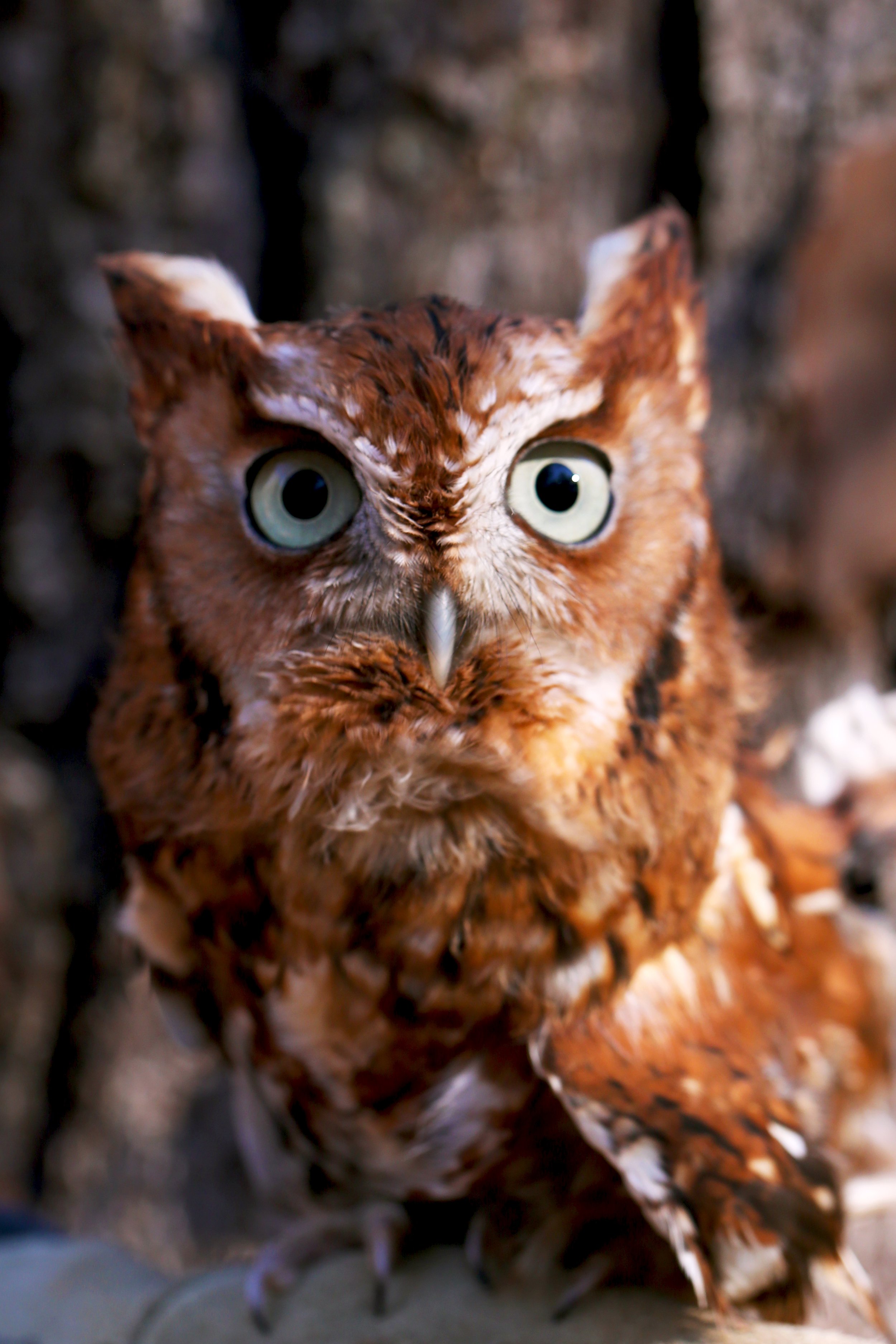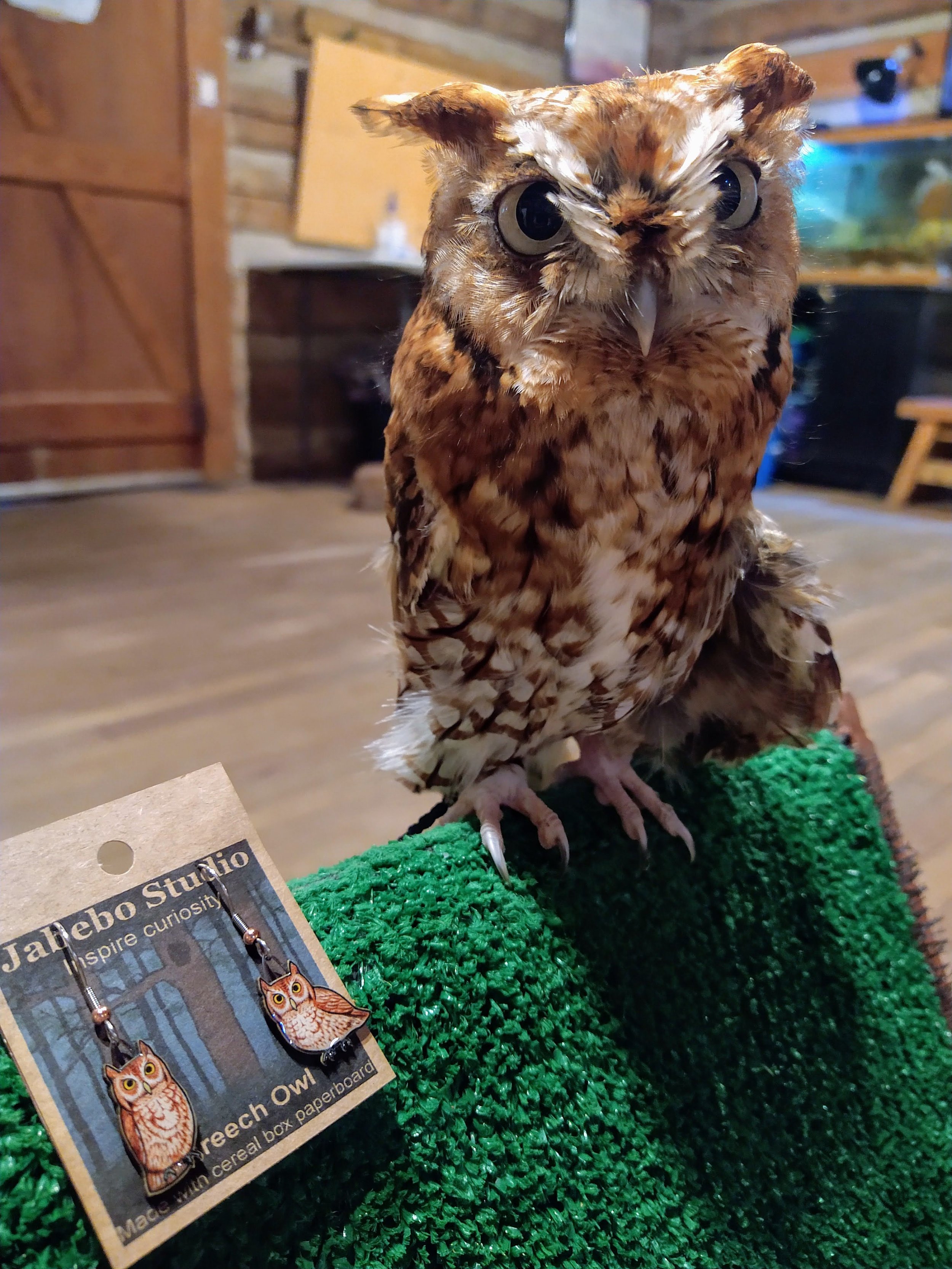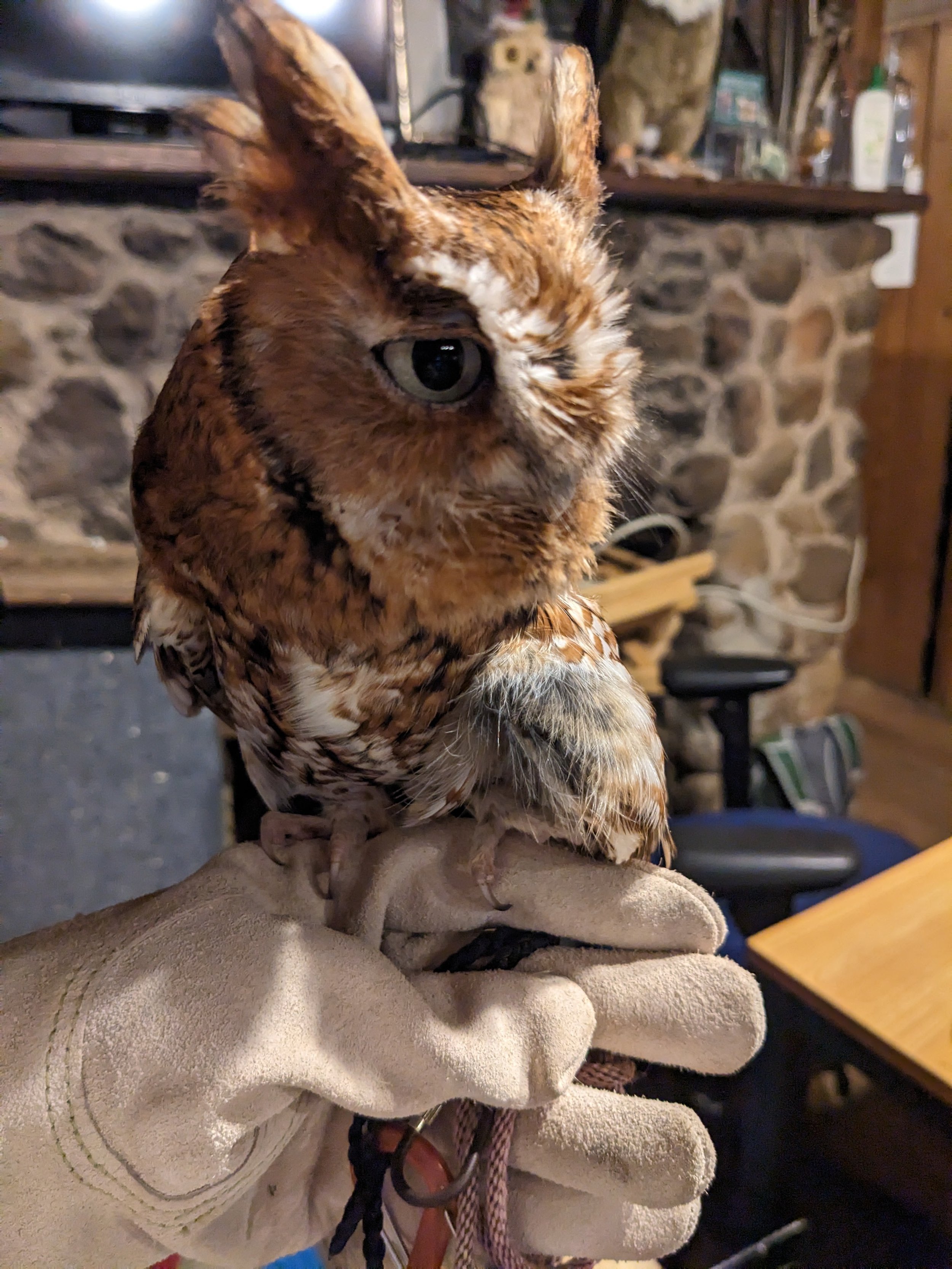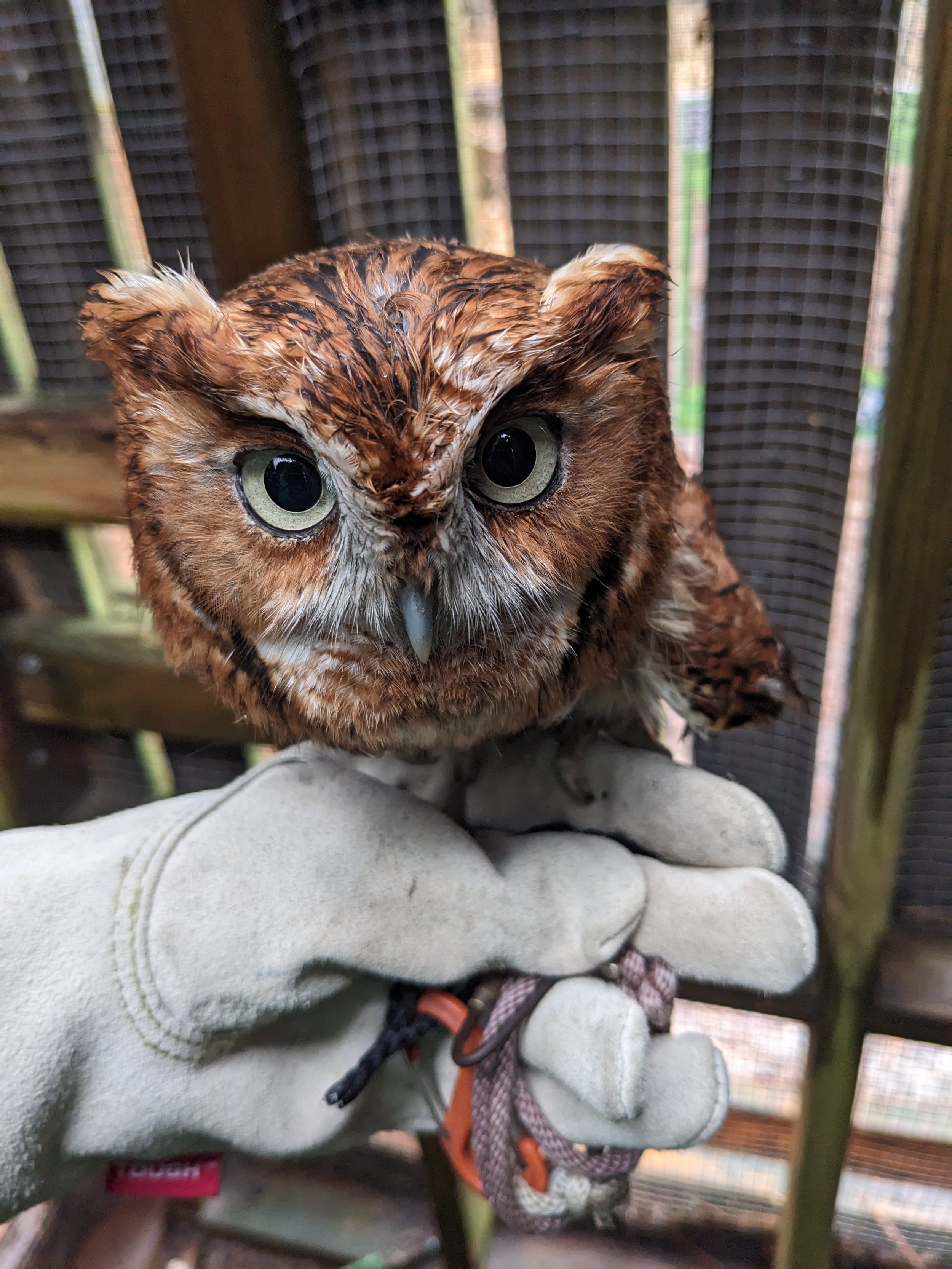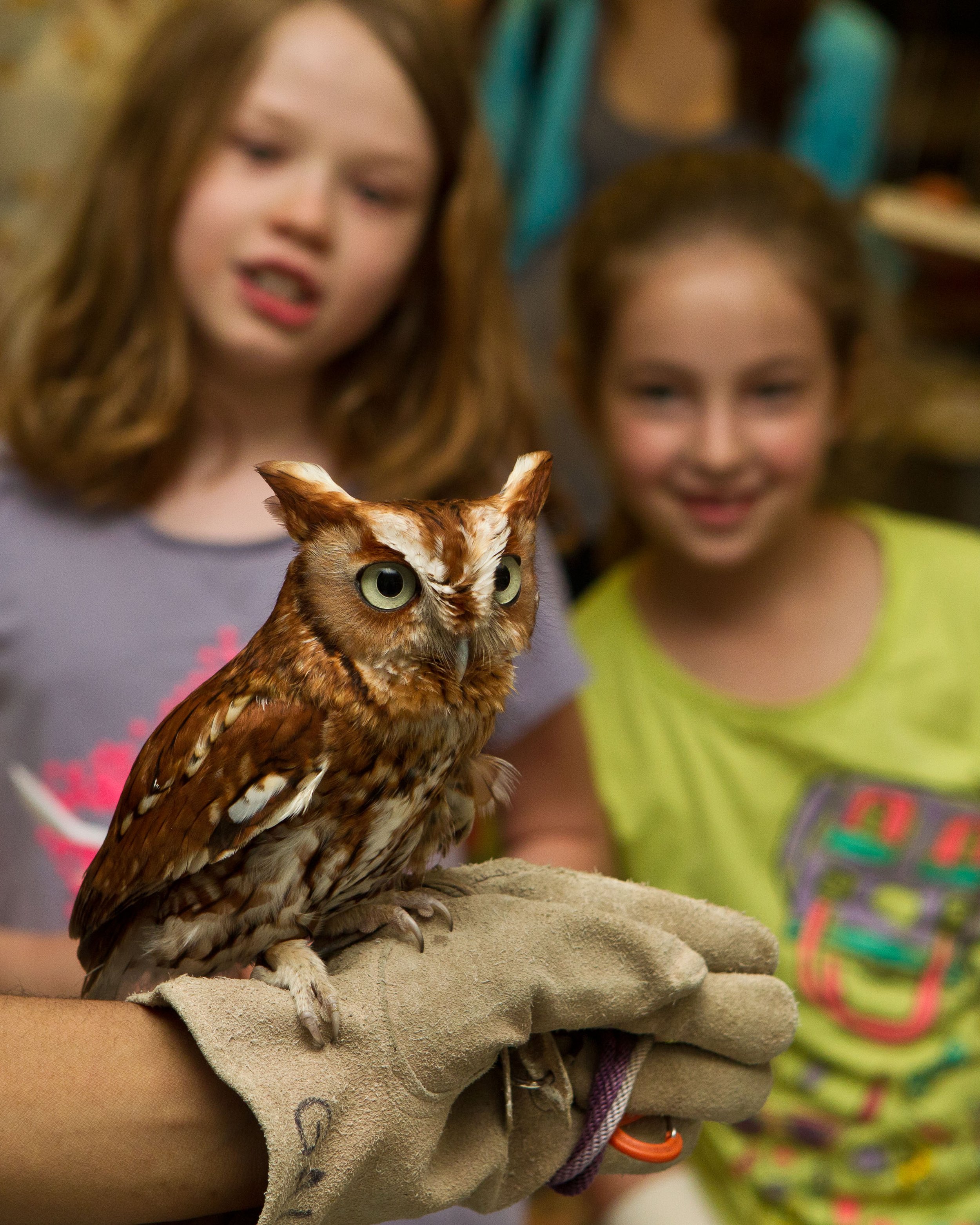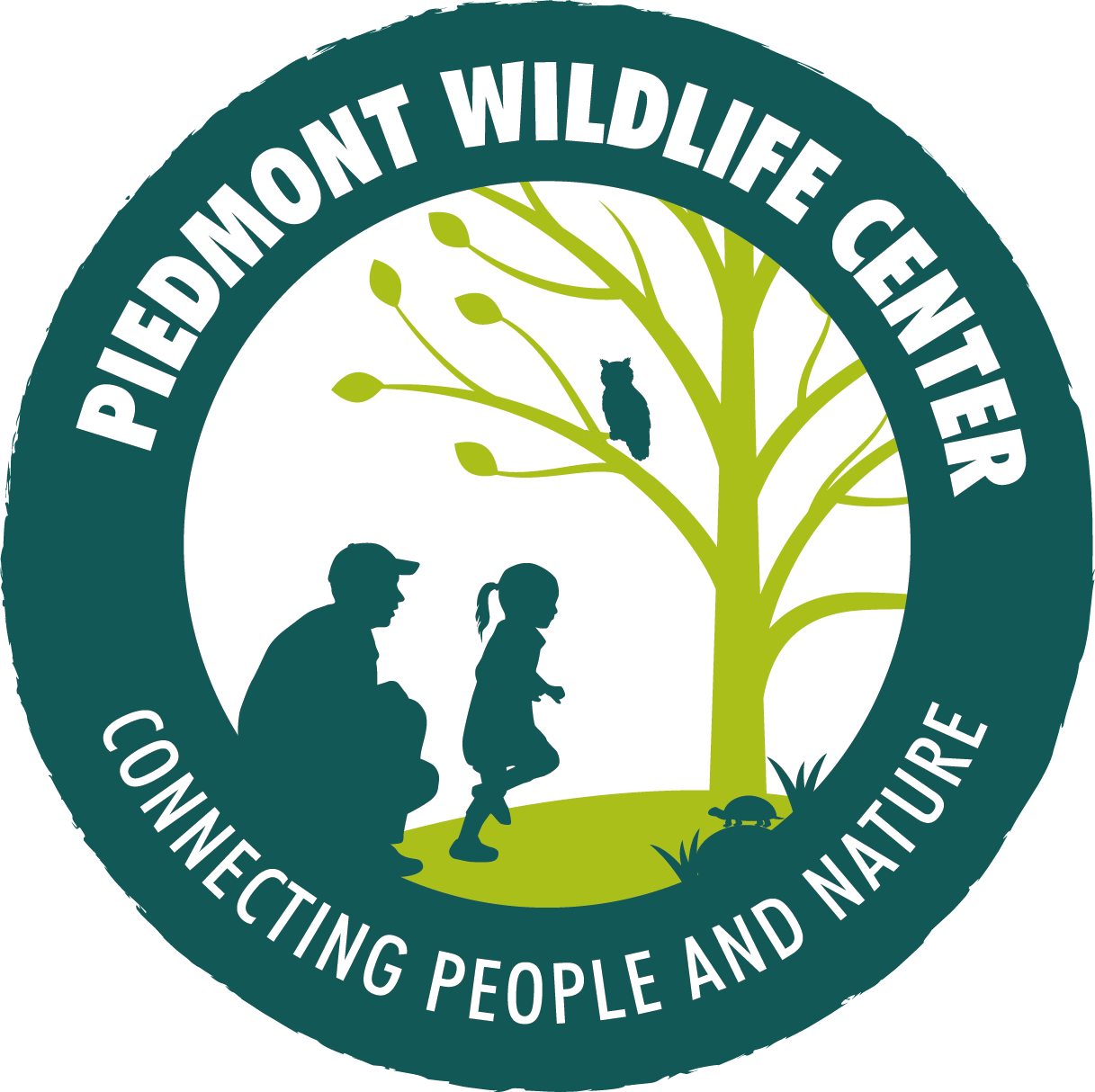We’re deeply saddened to report that Pepper the Virginia opossum passed away last Saturday, November 4th. At about 3.5 years old, Pepper lived nearly twice as long as wild opossums, who typically live only 1-2 years. Starting in October, our staff and volunteers noticed Pepper showing decreased interest in food and sleeping more than usual. She declined further at the beginning of November, becoming uncharacteristically lethargic and refusing to eat. When it became apparent that she would not improve, we made the difficult decision to humanely euthanize her to prevent further suffering.
The fact that Pepper retained a high quality of life until the very end is a testament to the hard work of our Conservation Team, especially Kaitlin Saxton (Research & Husbandry Coordinator). Over the last year and a half, Kaitlin made huge improvements to our opossums’ diet, adding more calcium-rich foods like yogurt, broccoli, and kale to prevent metabolic bone disease. She also put together a ‘possum playground outside the cabin so Pepper could enjoy supervised outdoor enrichment - and even built a new, larger indoor opossum enclosure from scratch with help from Camryn Jefferson (Conservation Assistant)! Because of these improvements to her care, Pepper remained active, inquisitive, and healthy until her final days.
Pepper and her sister were found as orphaned babies in early 2020. They were brought to Our Wild Neighbors in Hillsborough, NC, where they were given the care they needed to grow up strong and healthy. Her sister was released after a few months, but Pepper remained so small that she wouldn’t have survived in the wild. She was deemed non-releasable and came to live as an Ambassador Animal at Piedmont Wildlife Center in November 2020.
Over the 3 years she was with us, Pepper went on countless programs where she met hundreds of students, campers, and adults. Her inquisitive and calm personality (not to mention her adorable face!) helped teach them not to fear these beneficial, often-misunderstood animals. Pepper was also popular online, receiving the second-highest number of “adopters” through our Adopt-an-Ambassador program. Most of her adopters were from out of state, including Georgia, Pennsylvania, and even the United Kingdom! Pepper educated so many people during her lifetime, and we are forever grateful for her time with her.
If you feel moved to make a gift in Pepper’s memory, you may do so below. Thank you, Pepper, for working so hard to connect people with the wonders of native NC wildlife. We hope you’re enjoying yummy snacks, interesting smells, and cozy naps over the Rainbow Bridge.













































